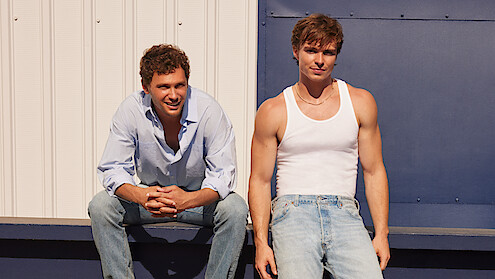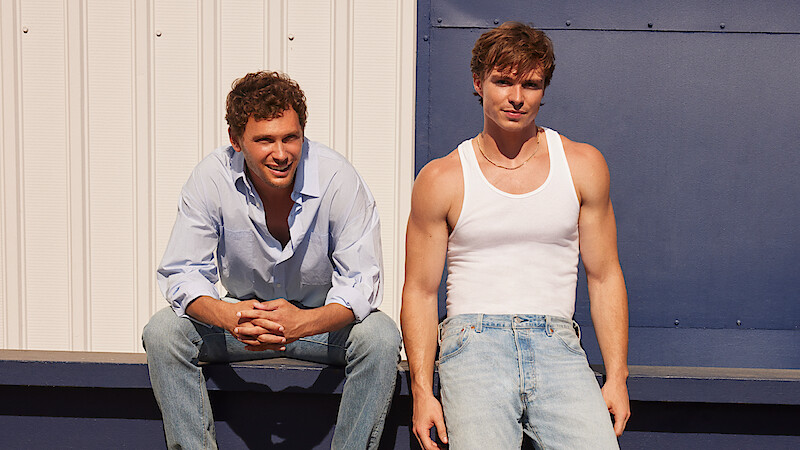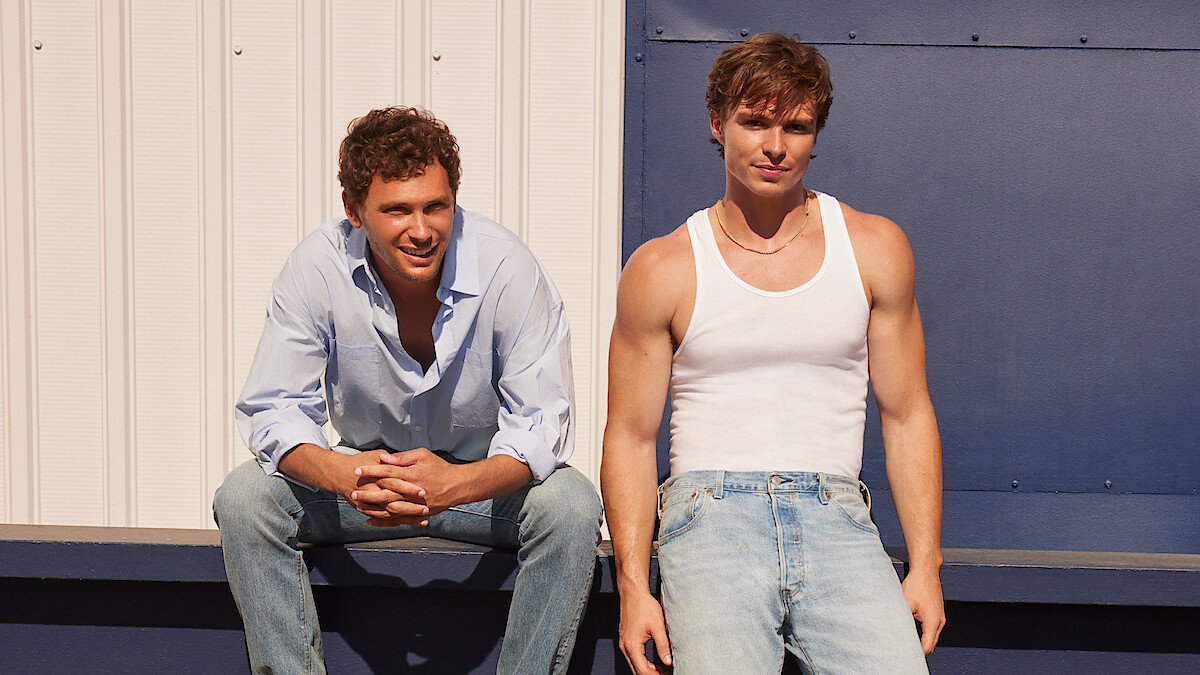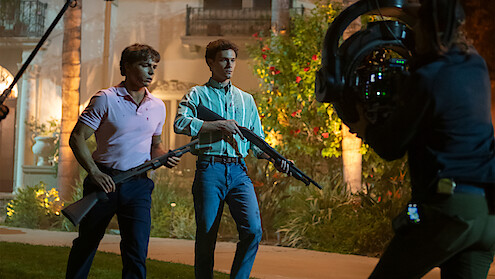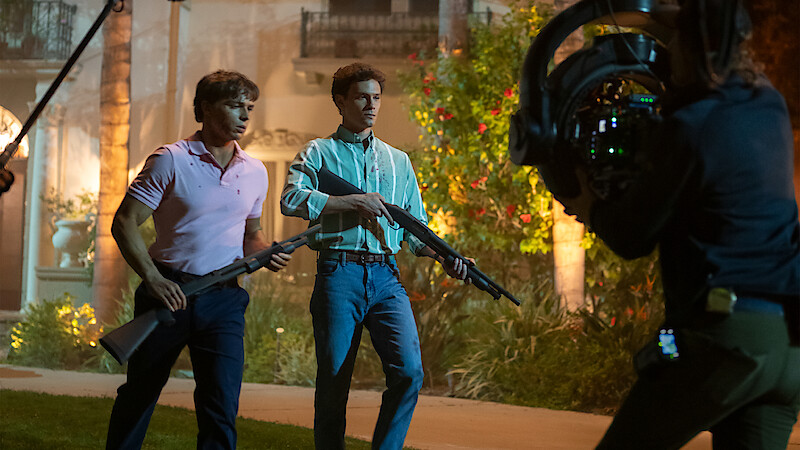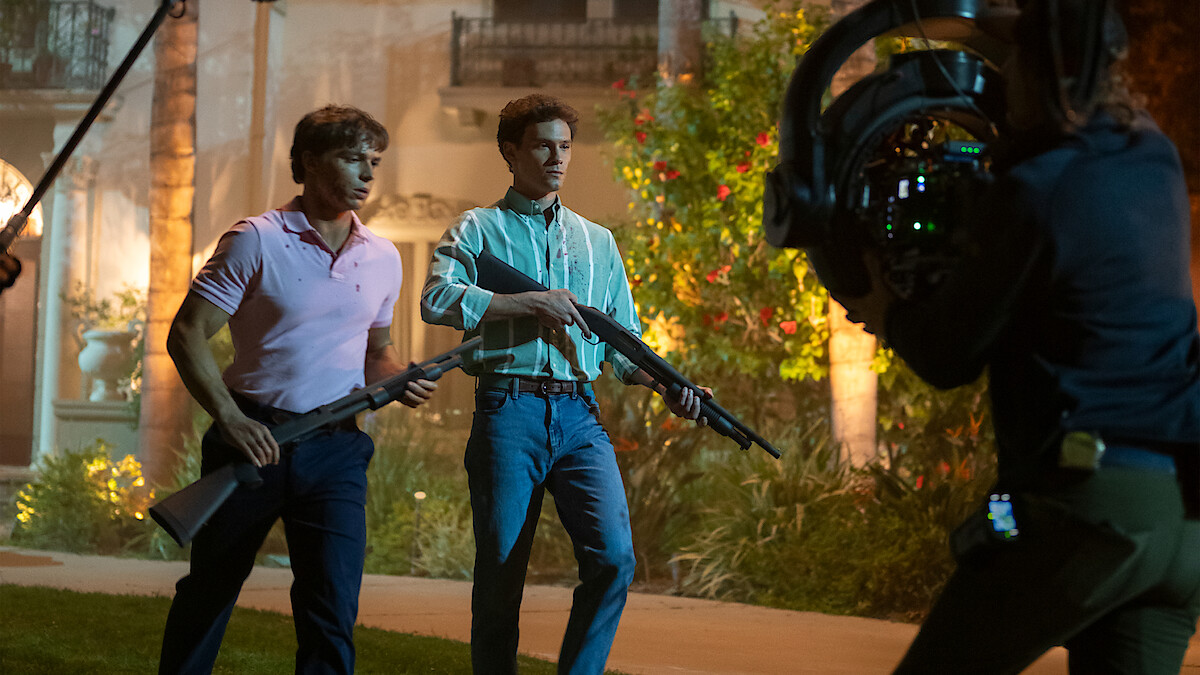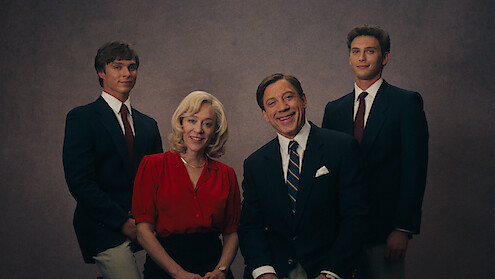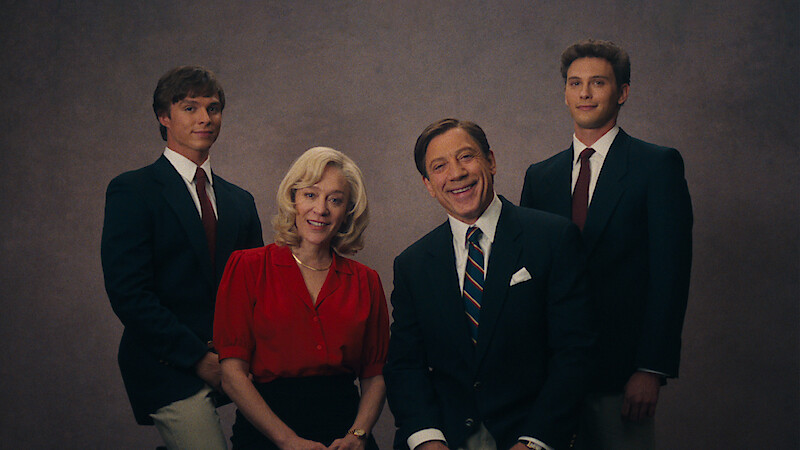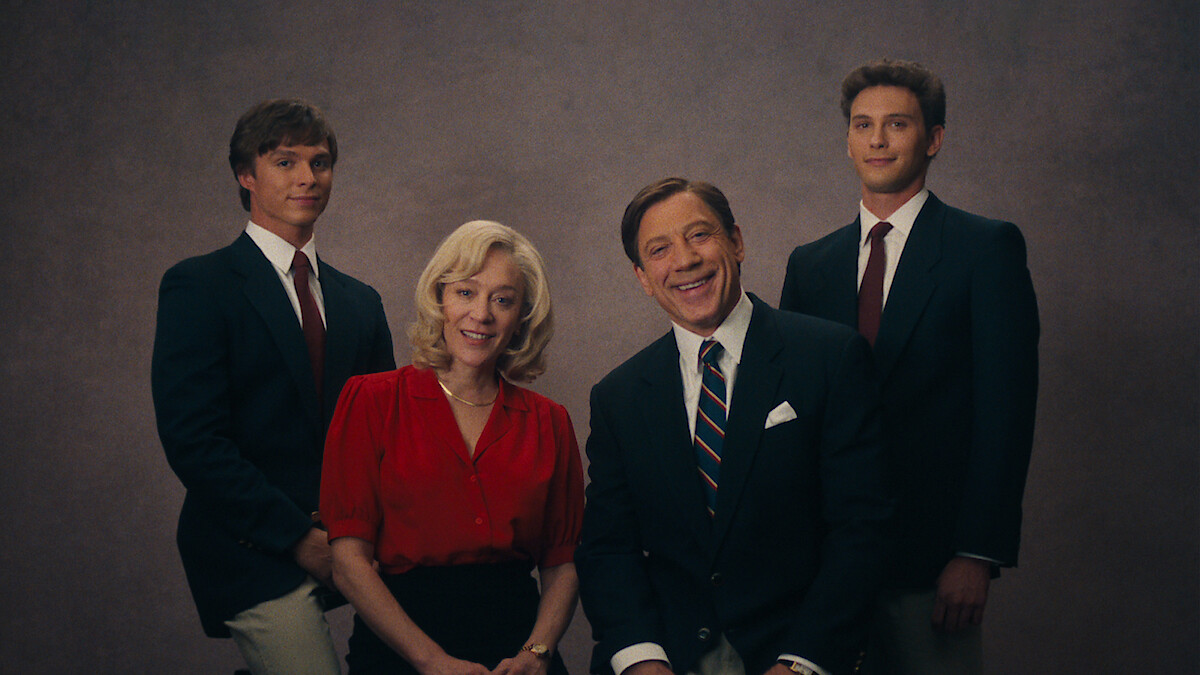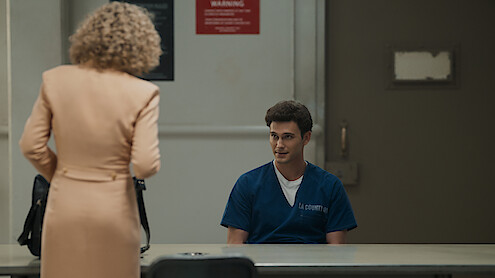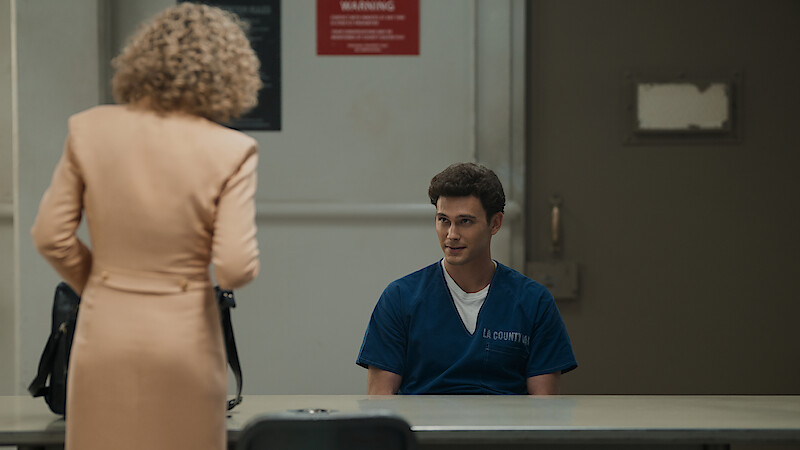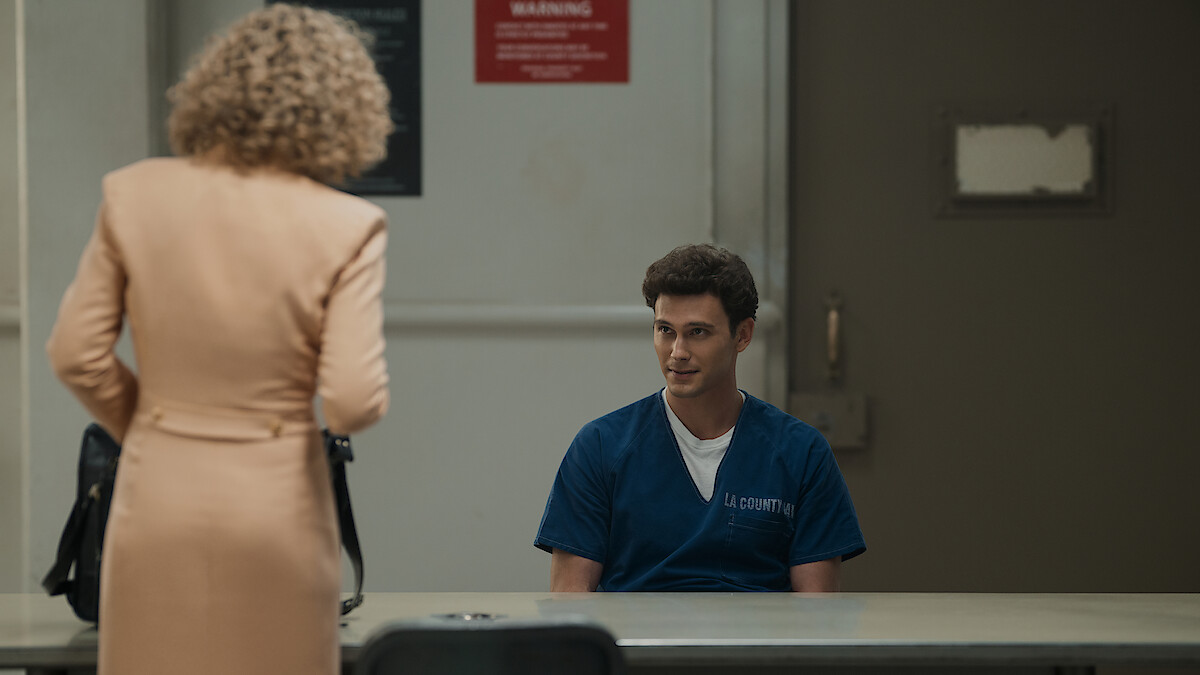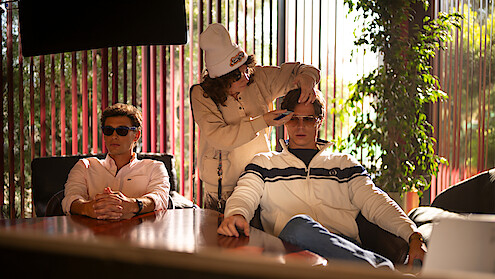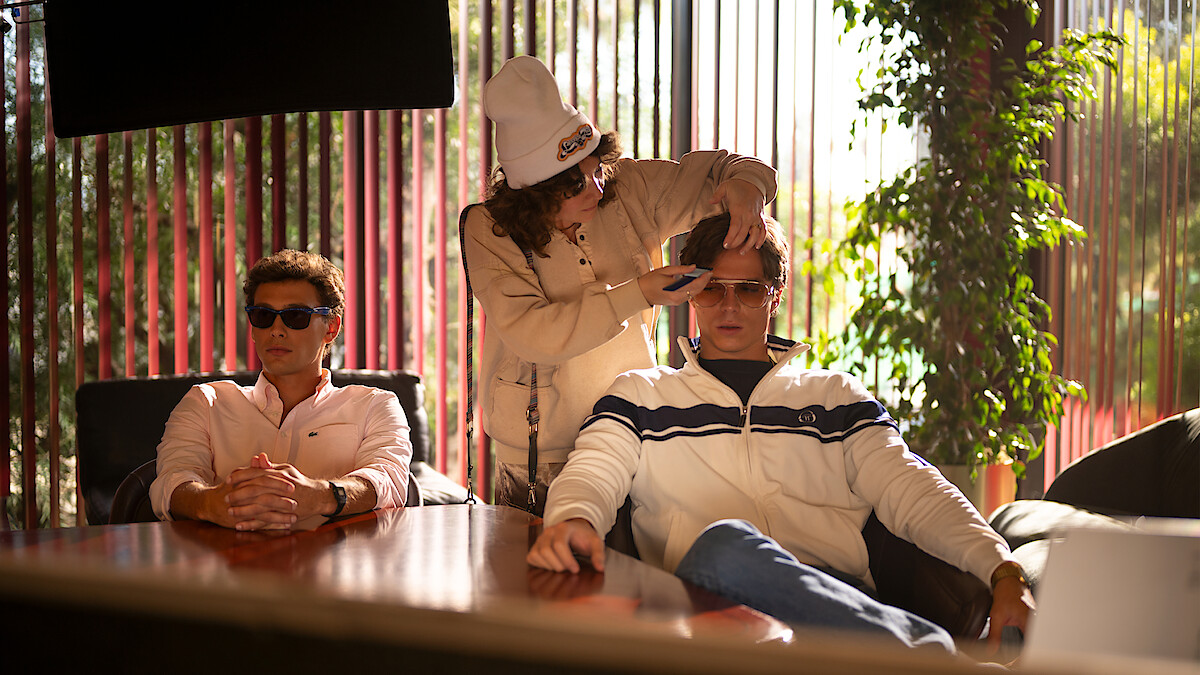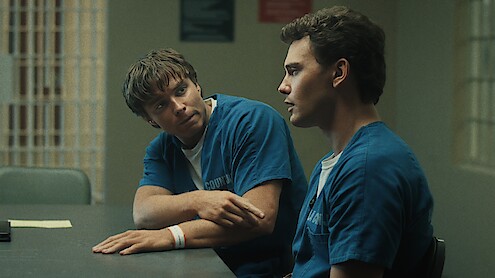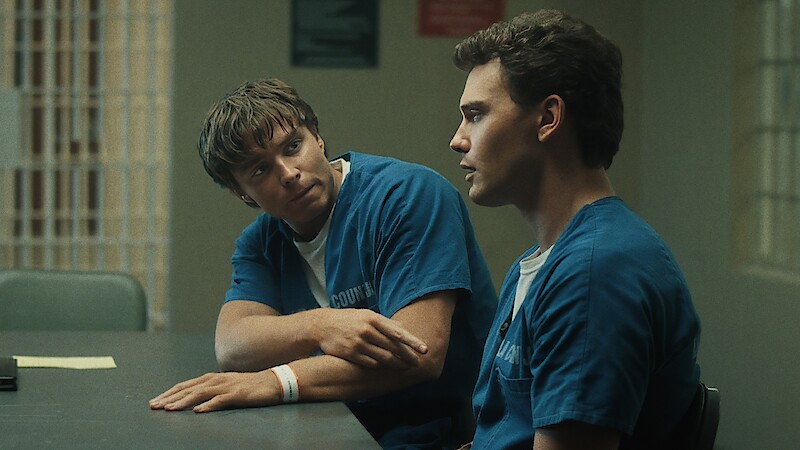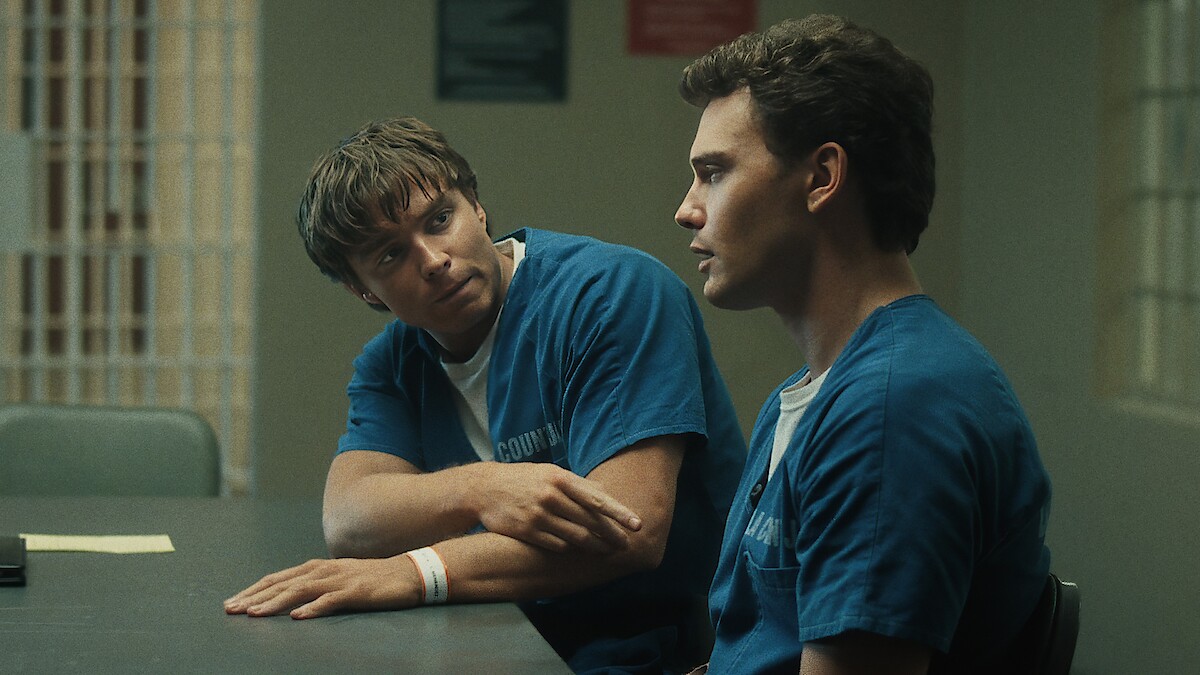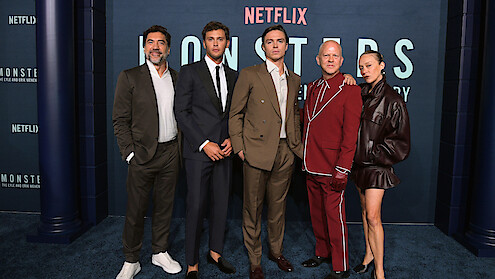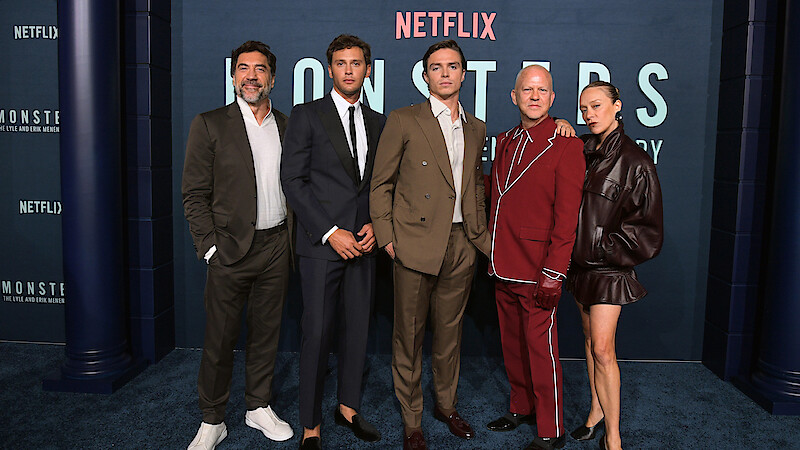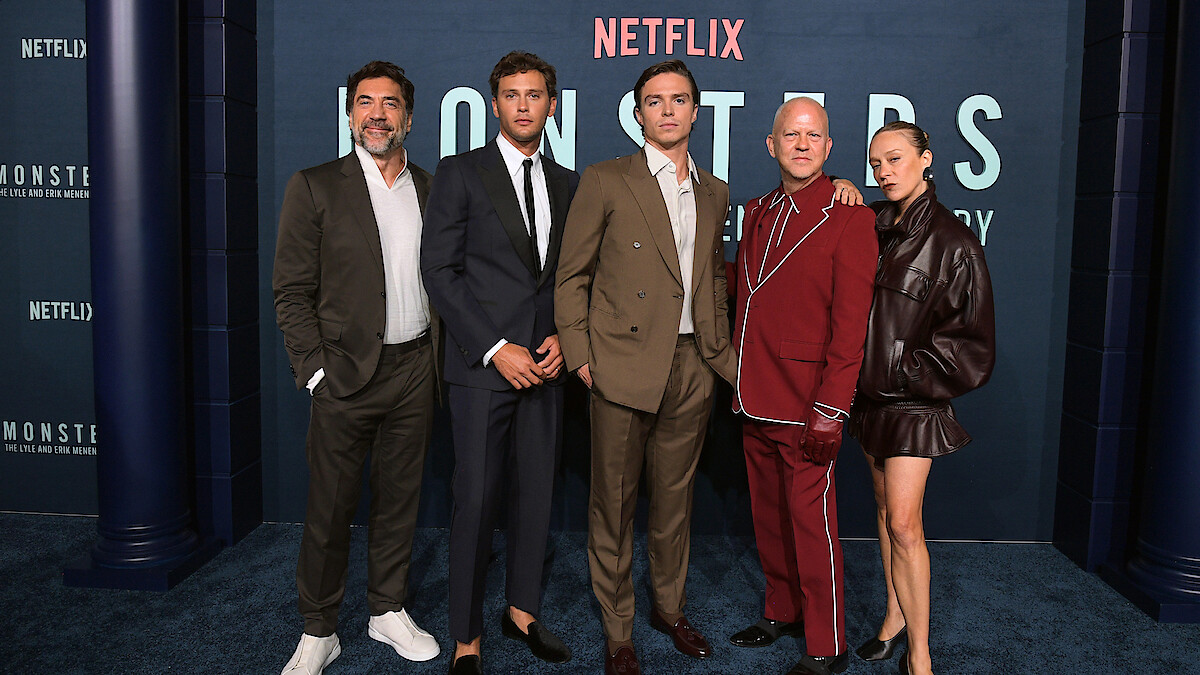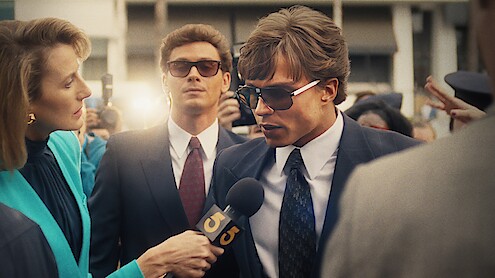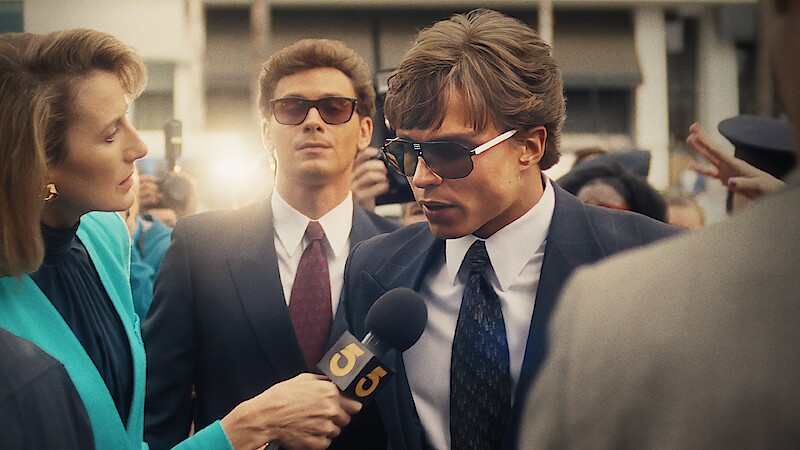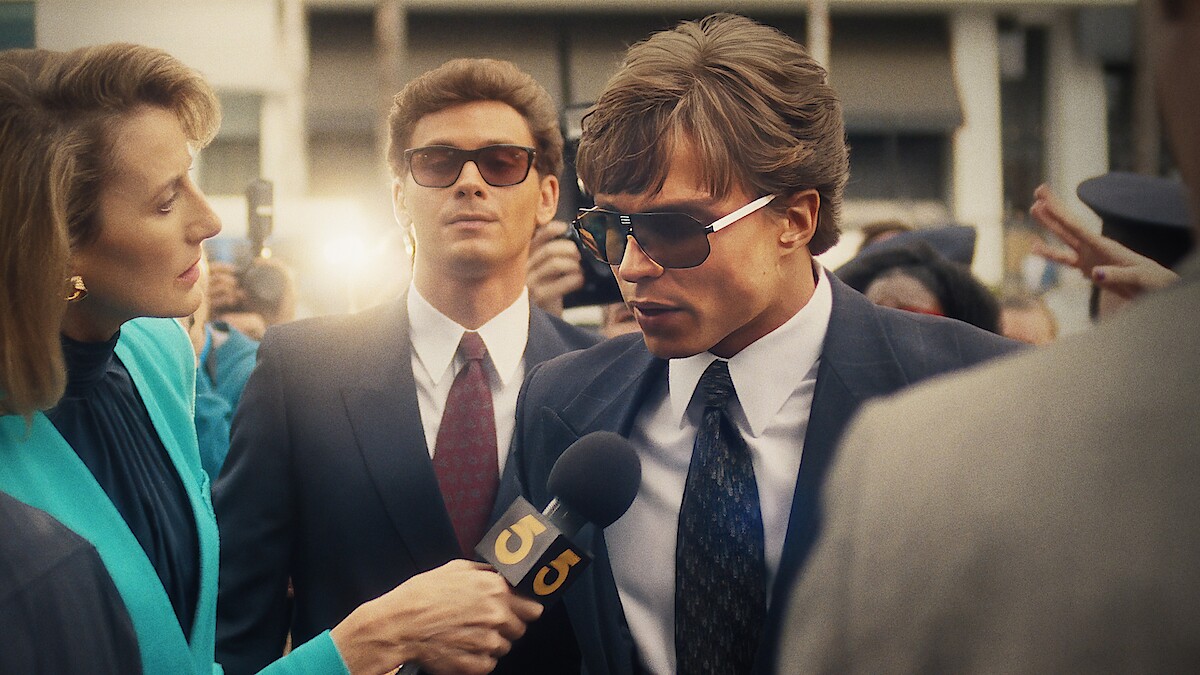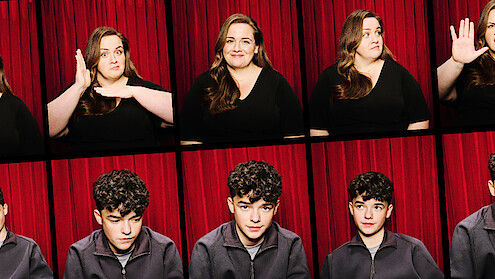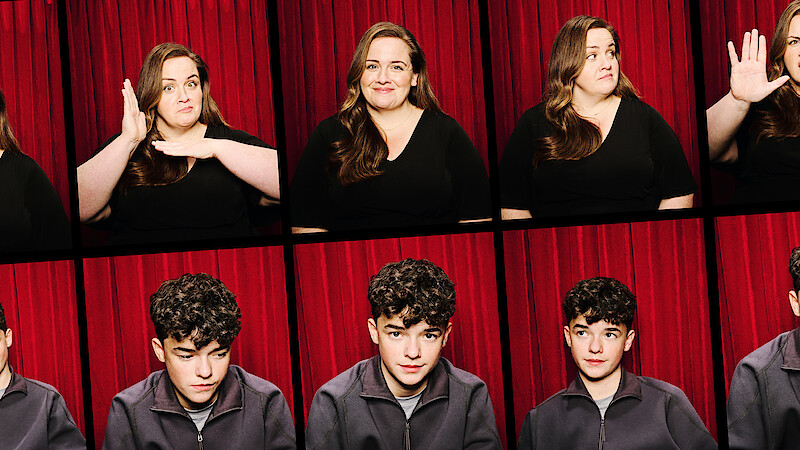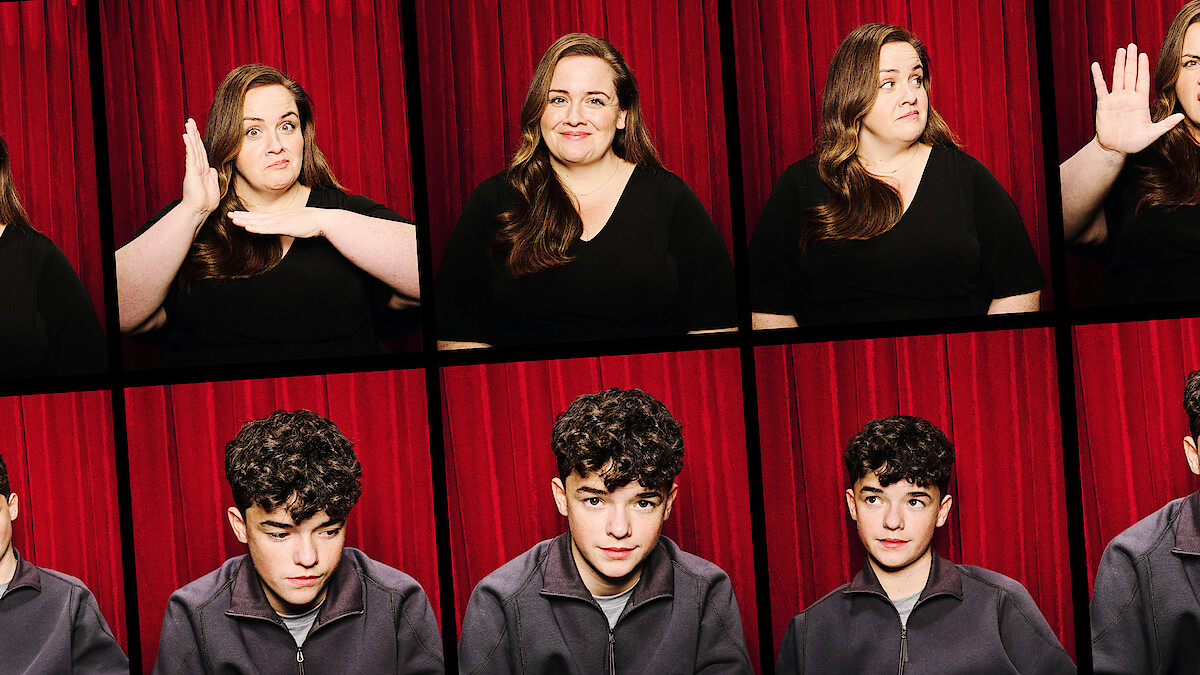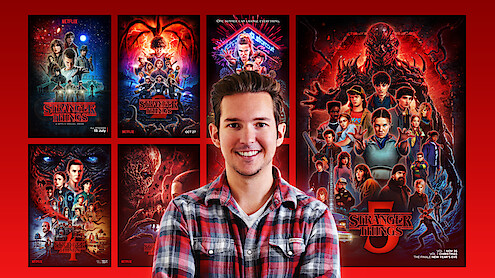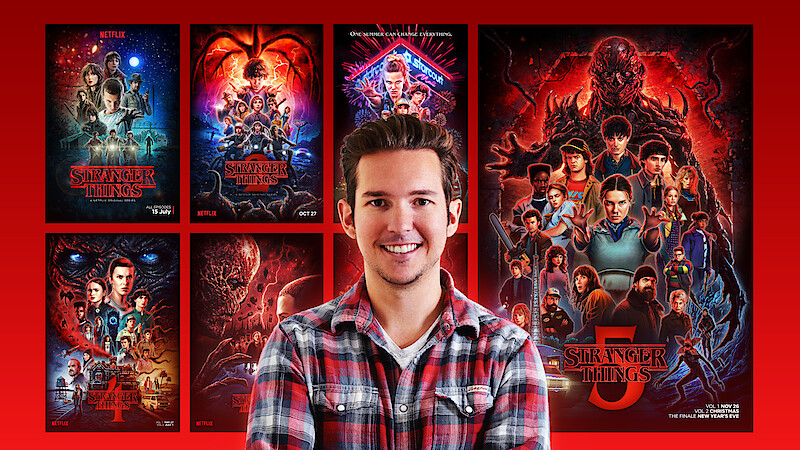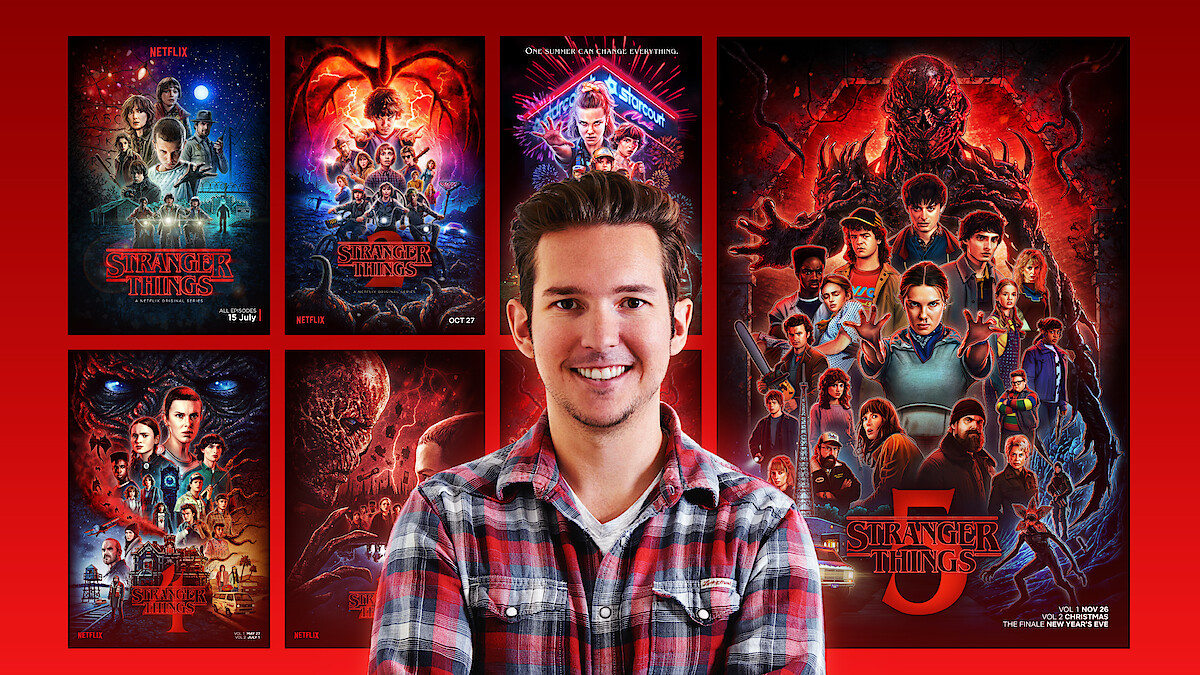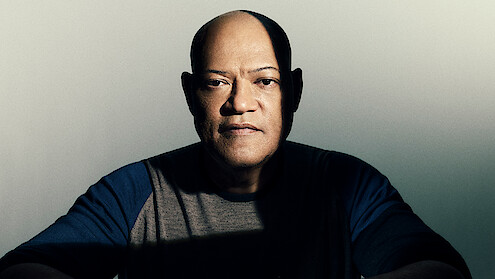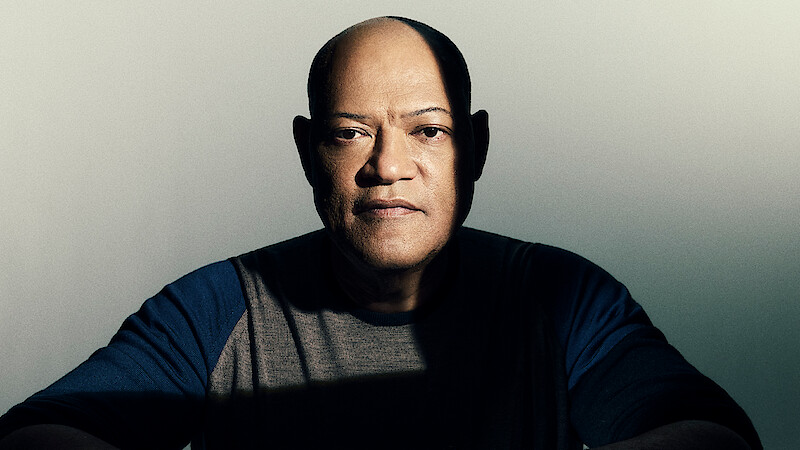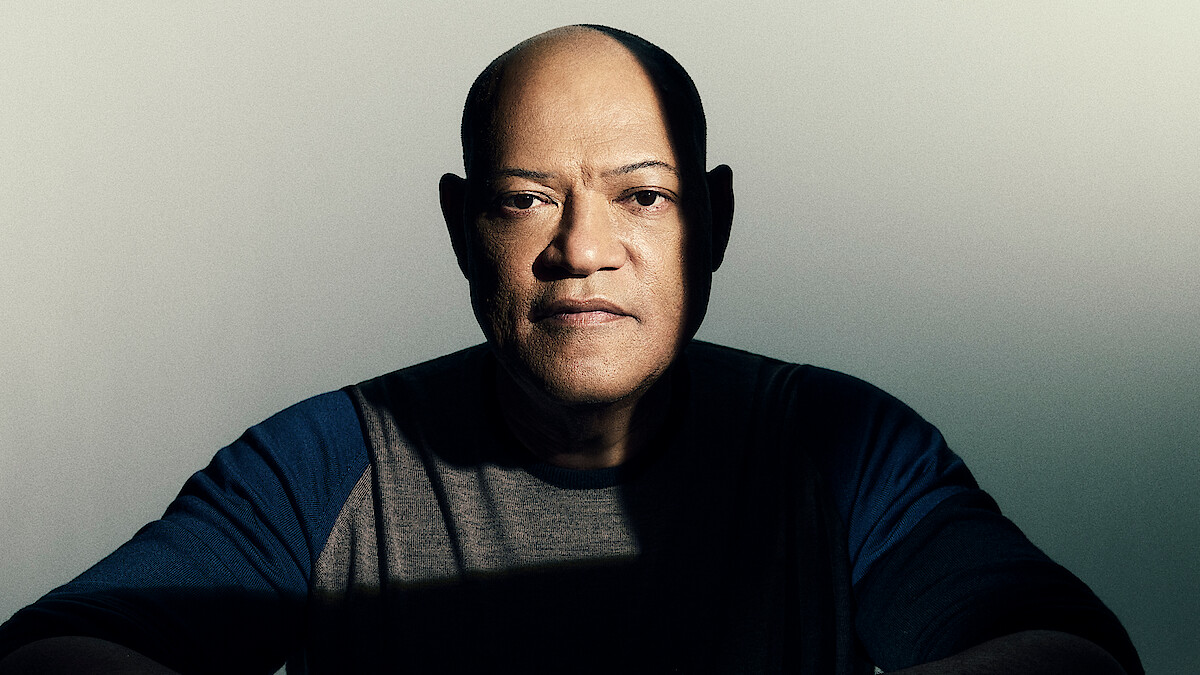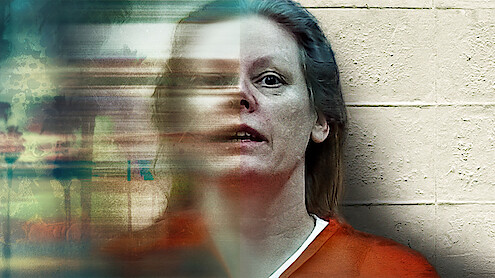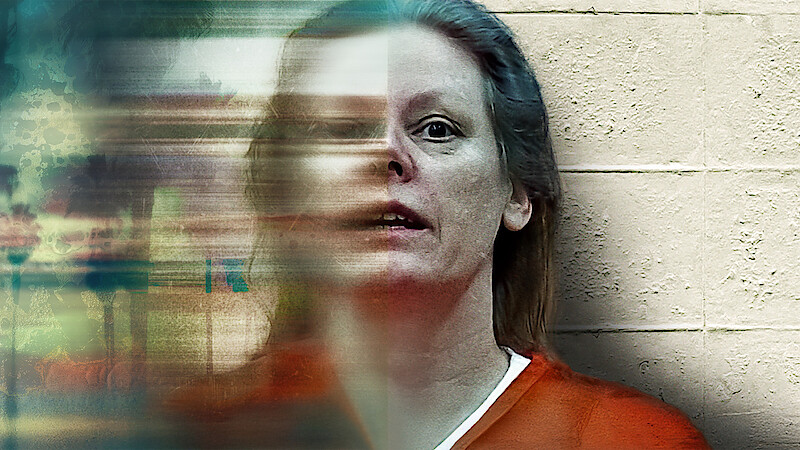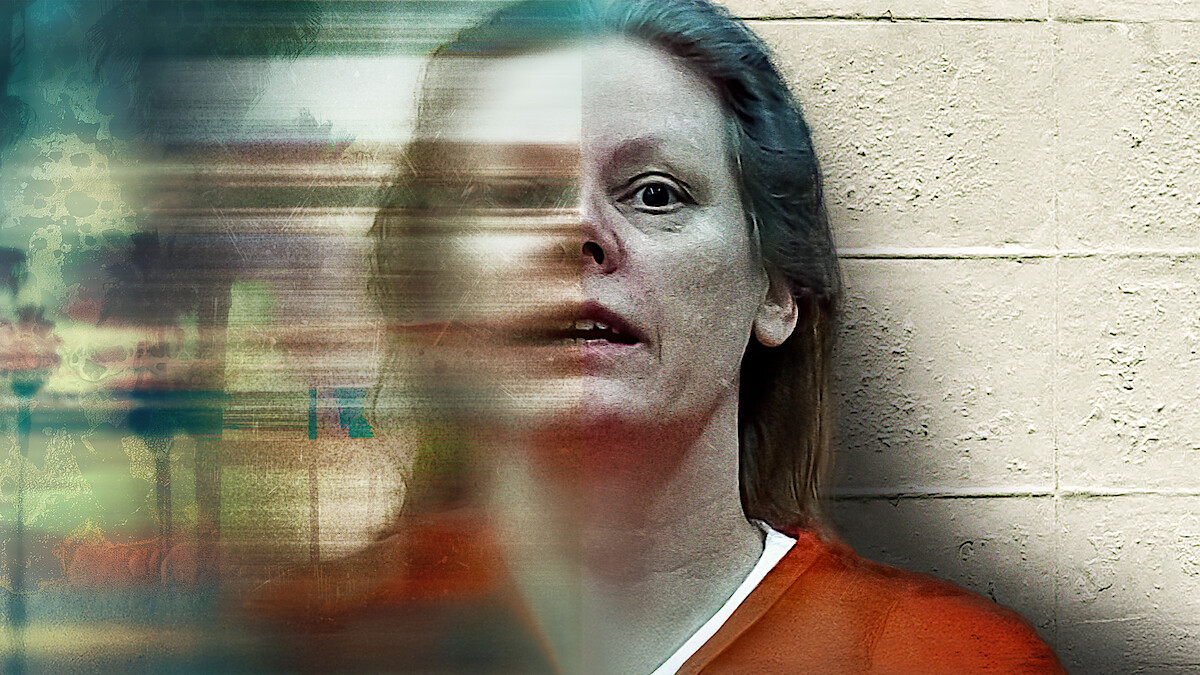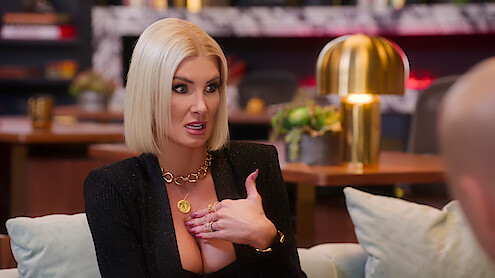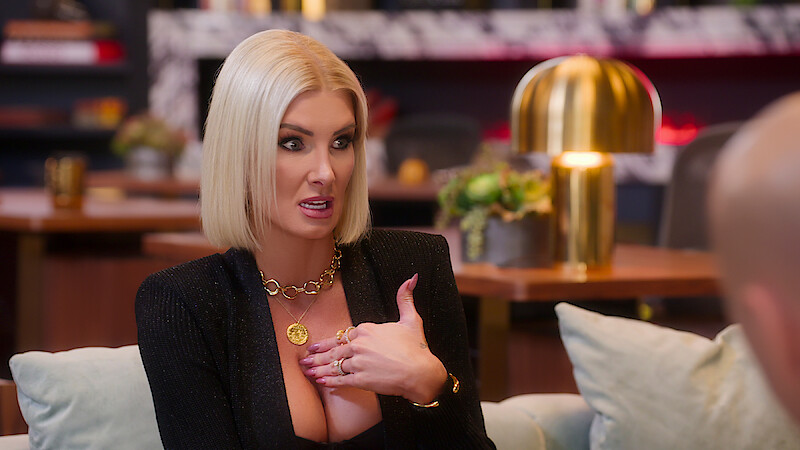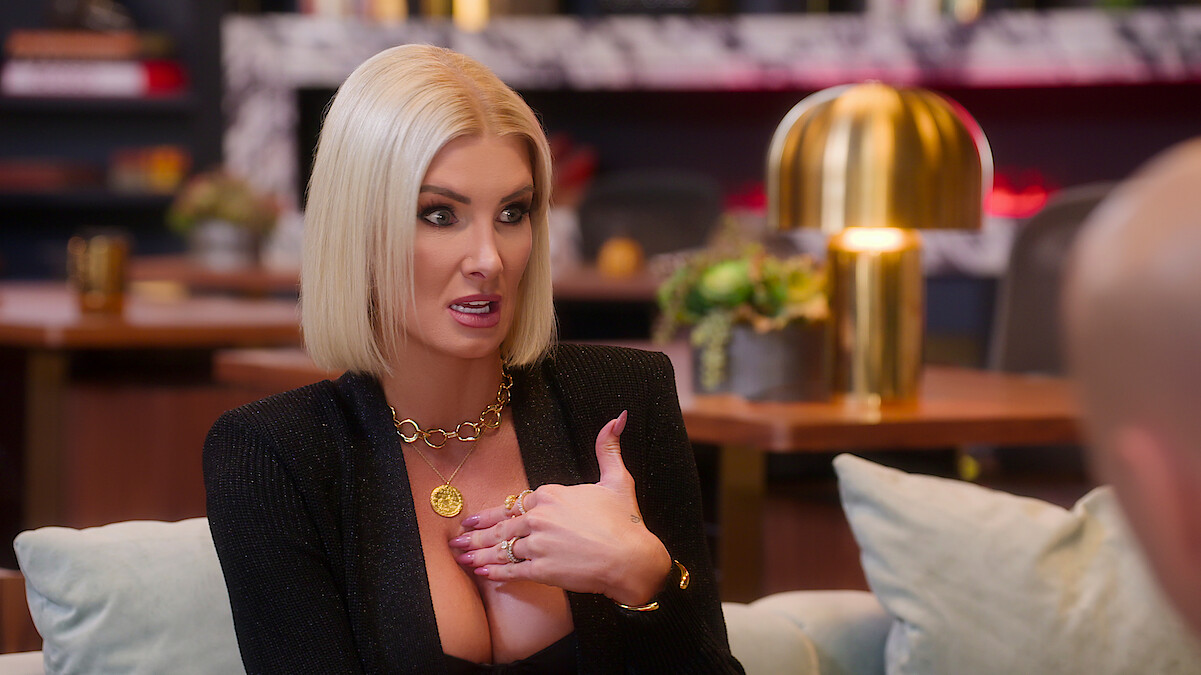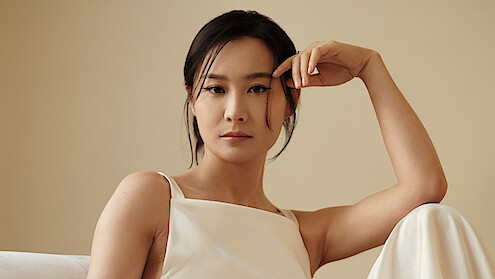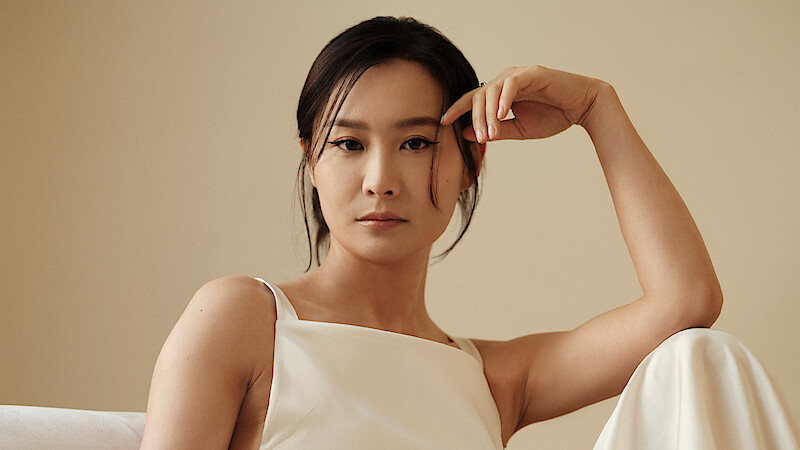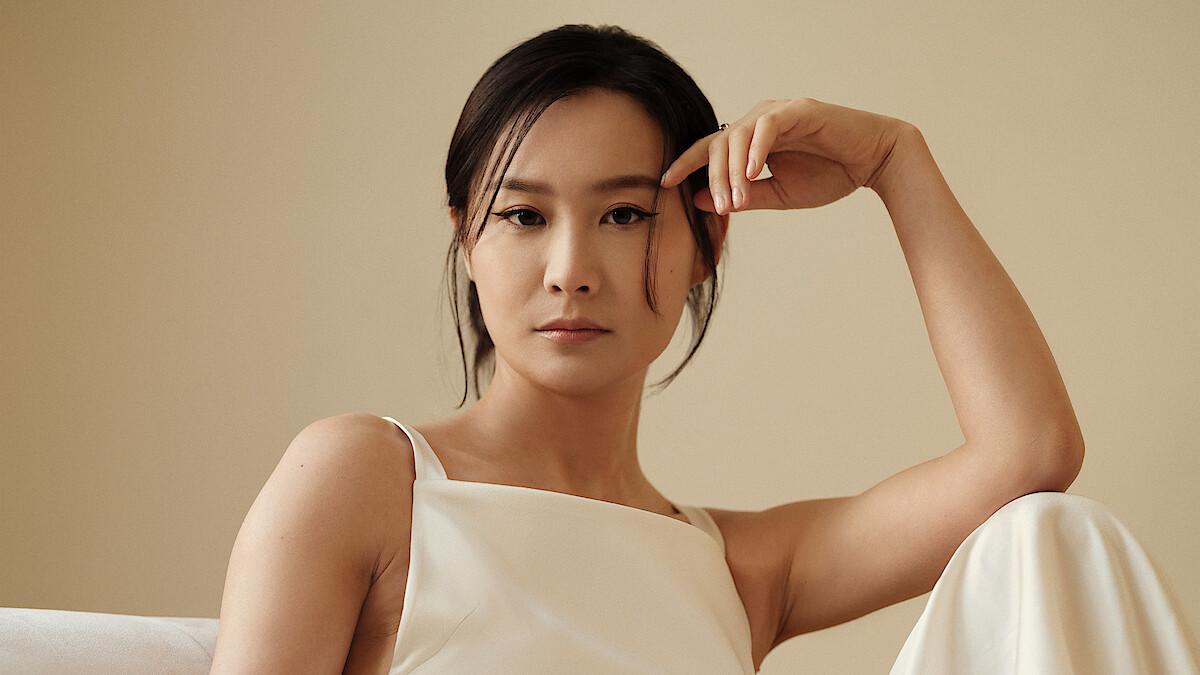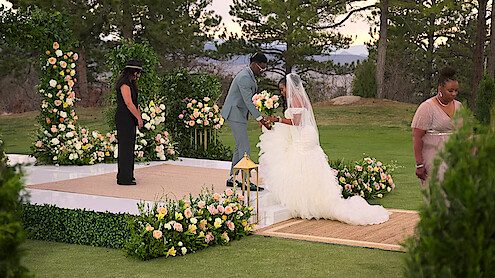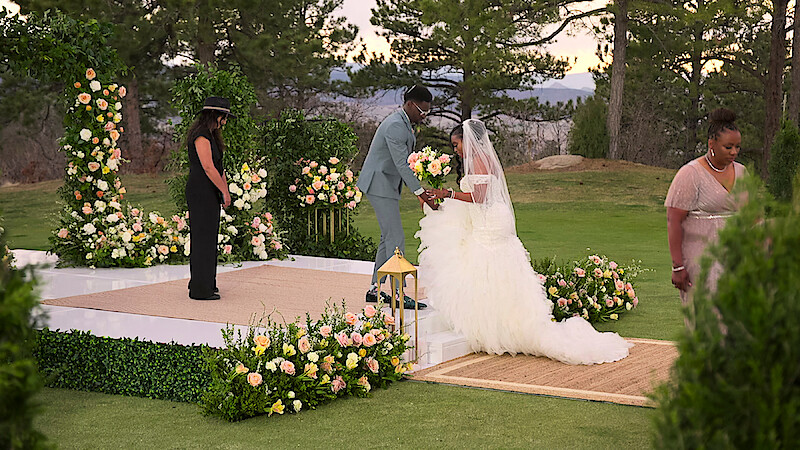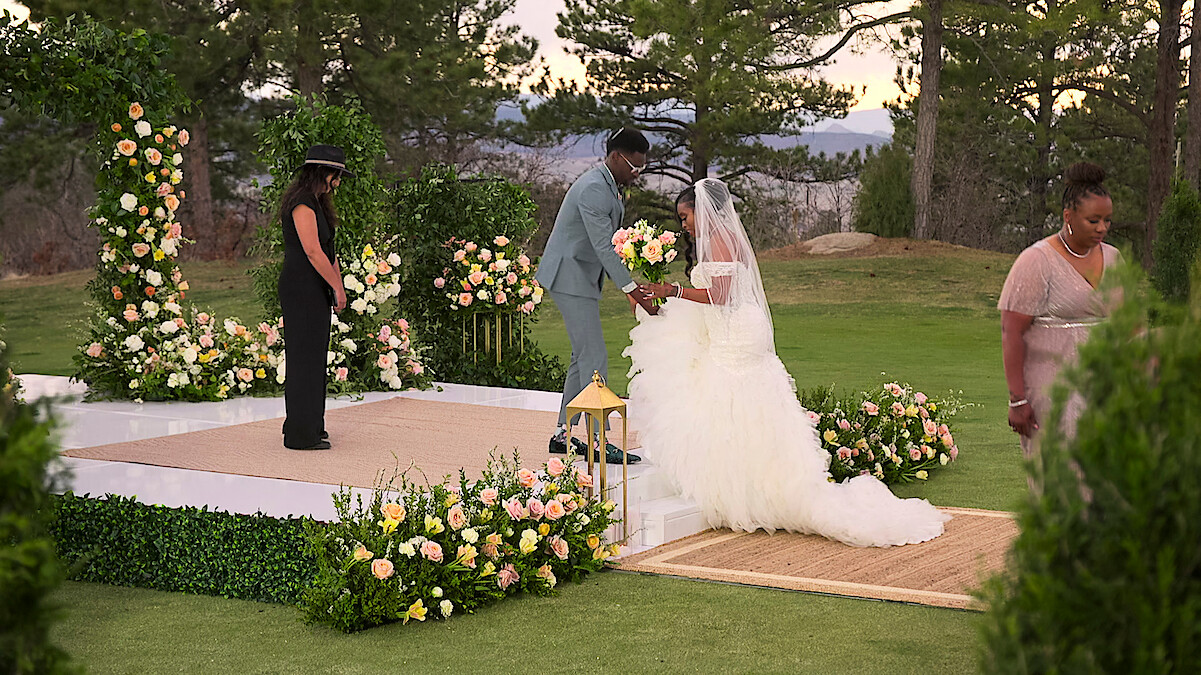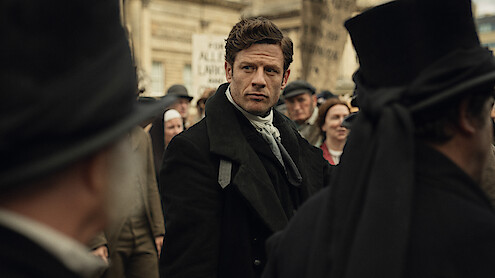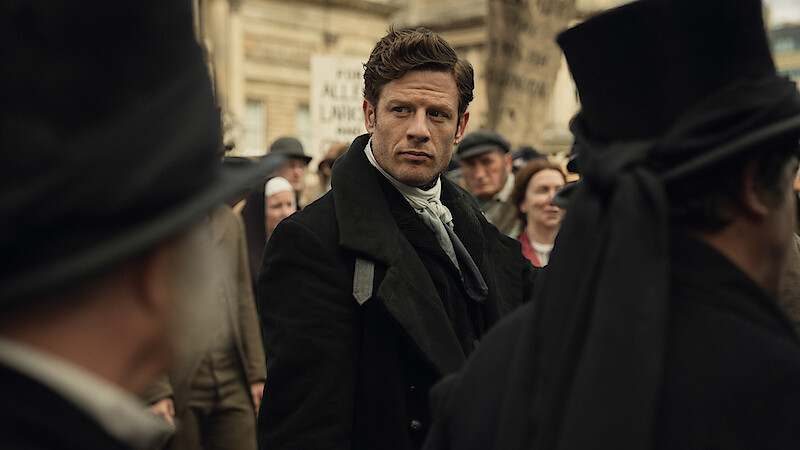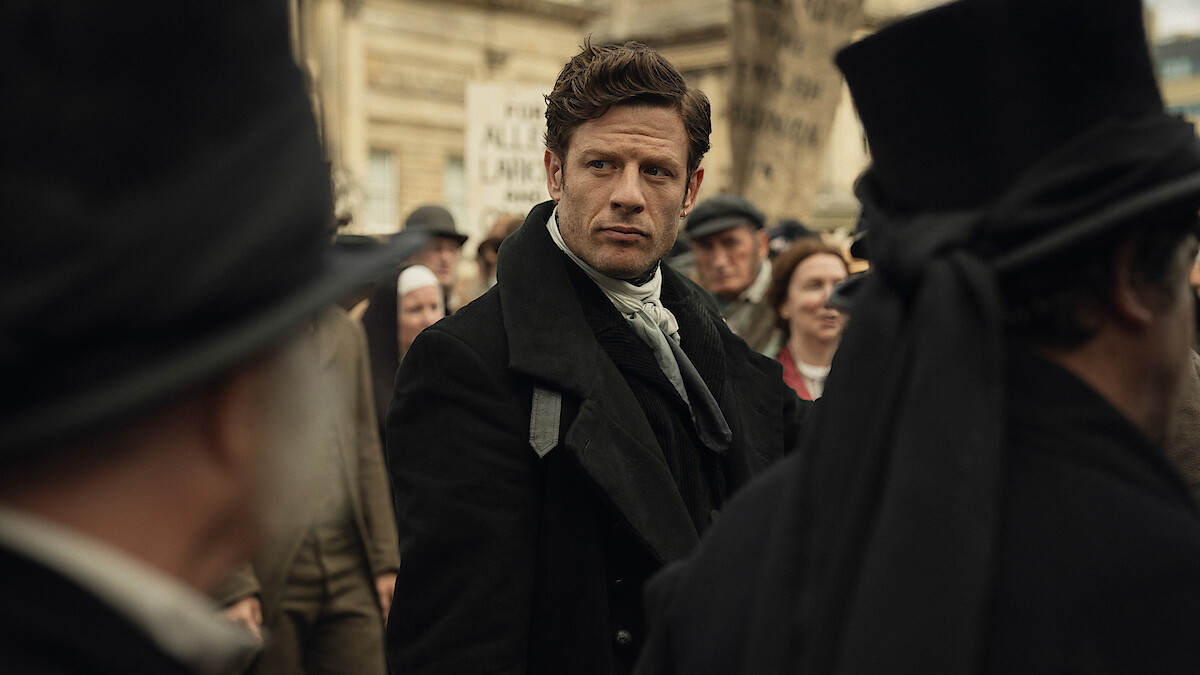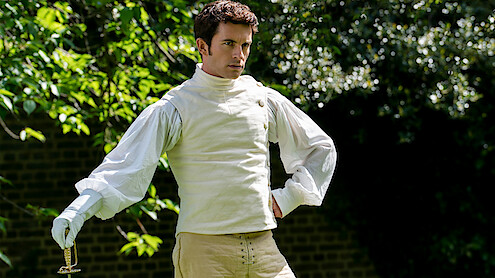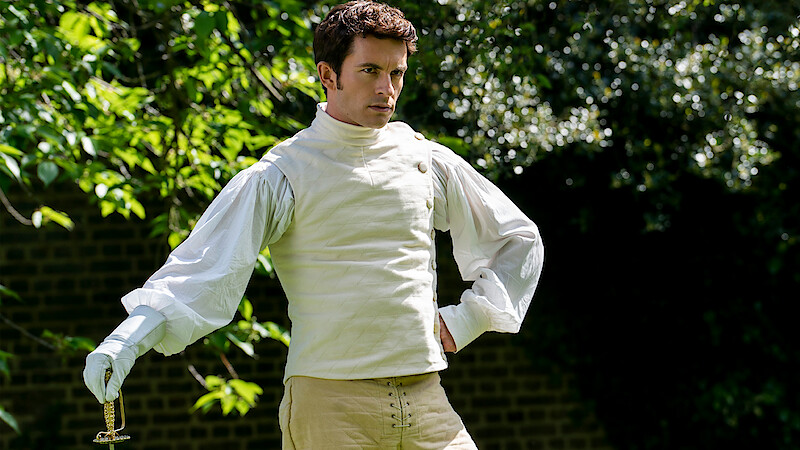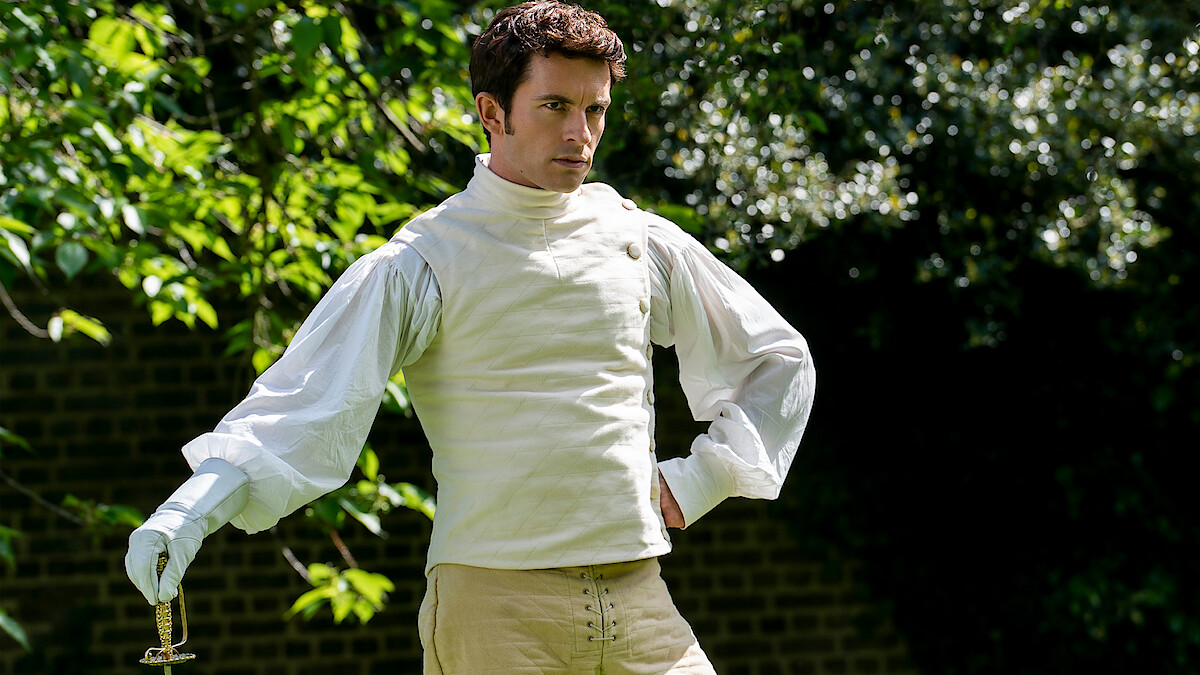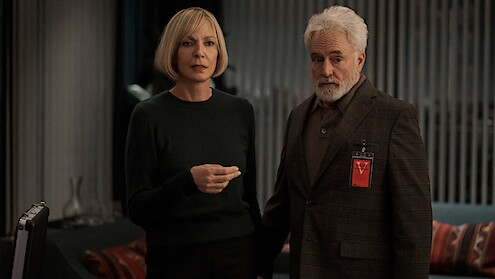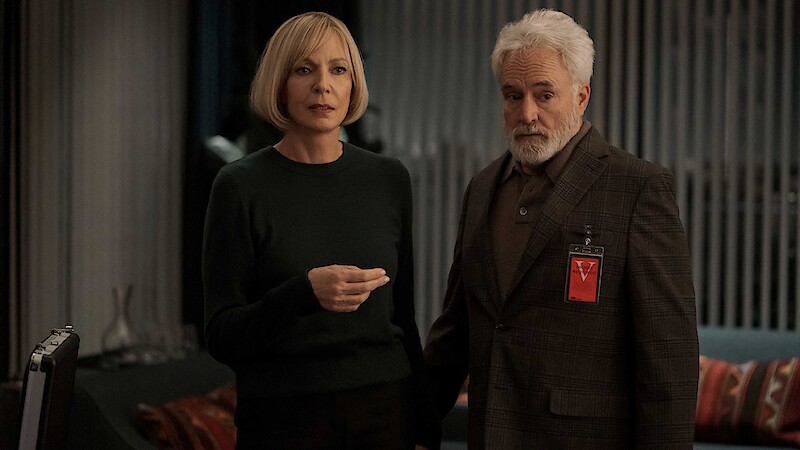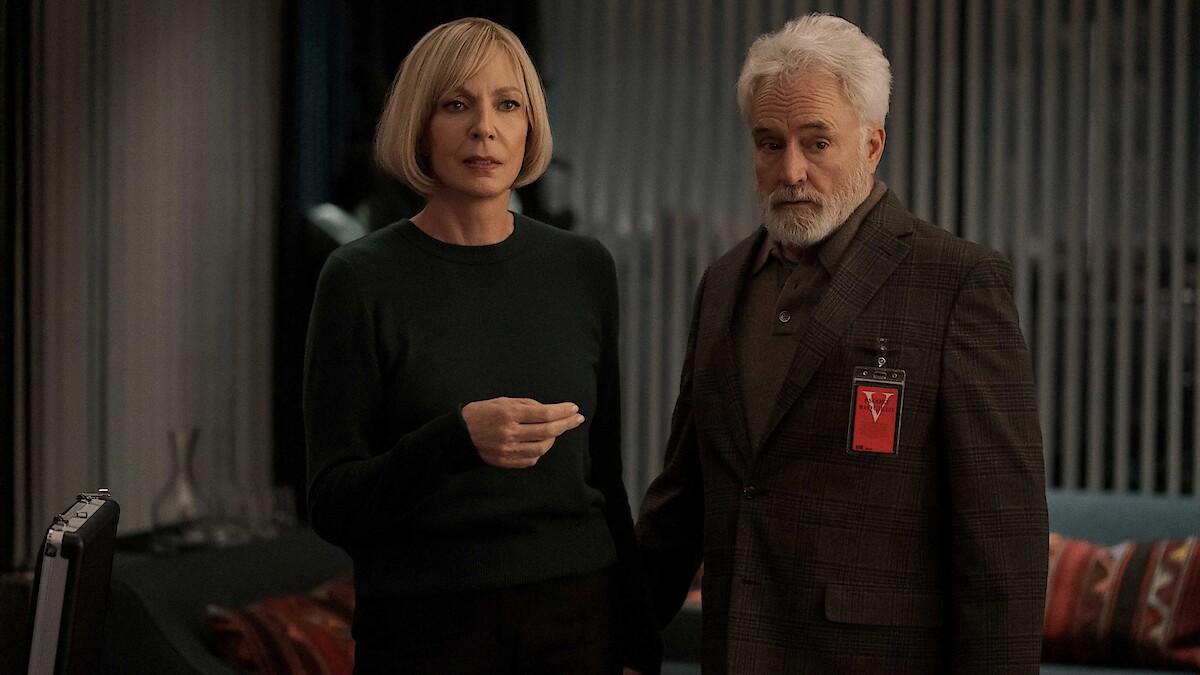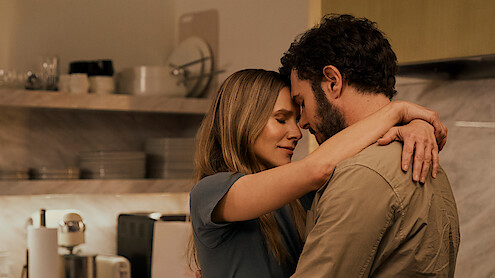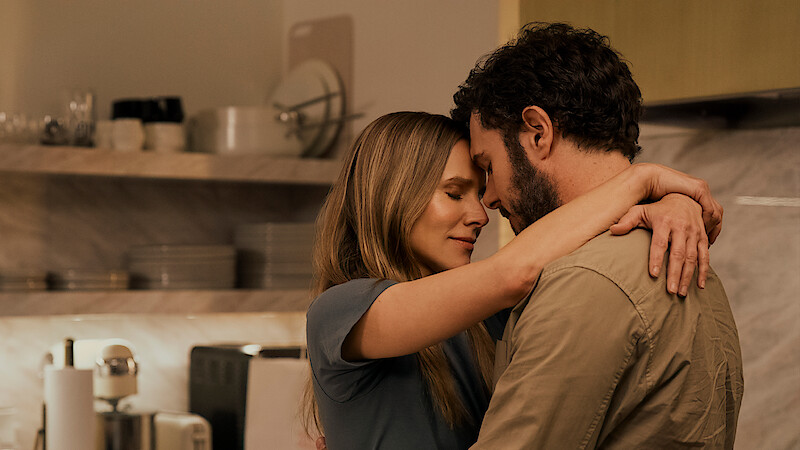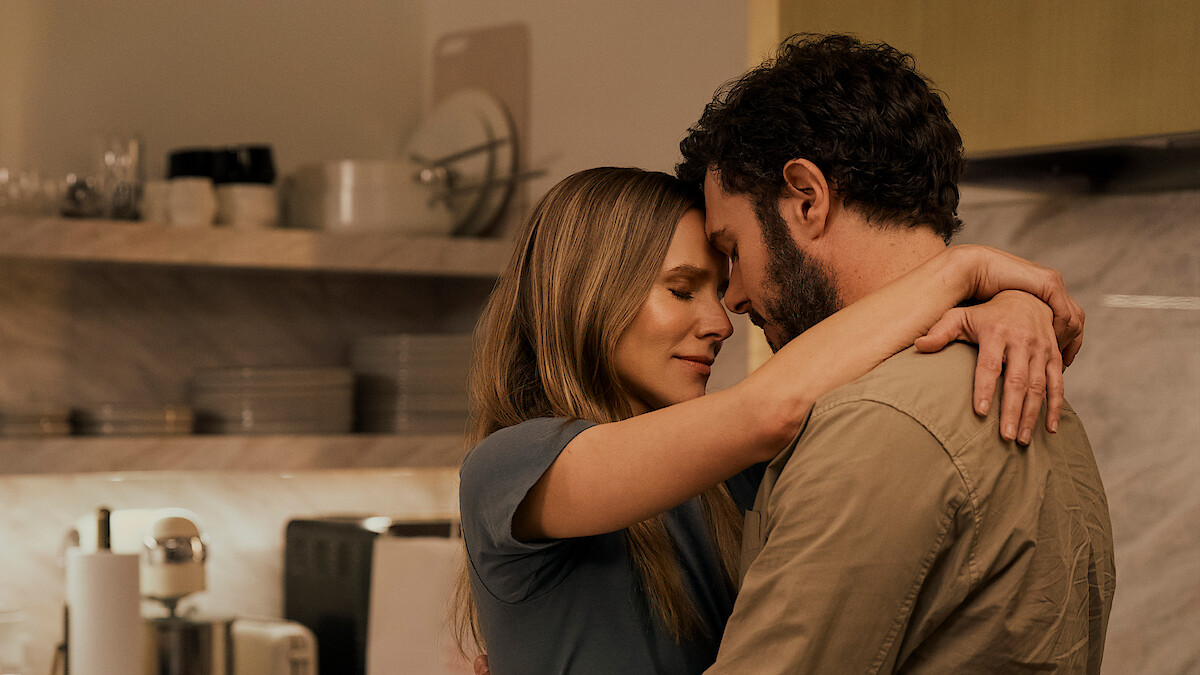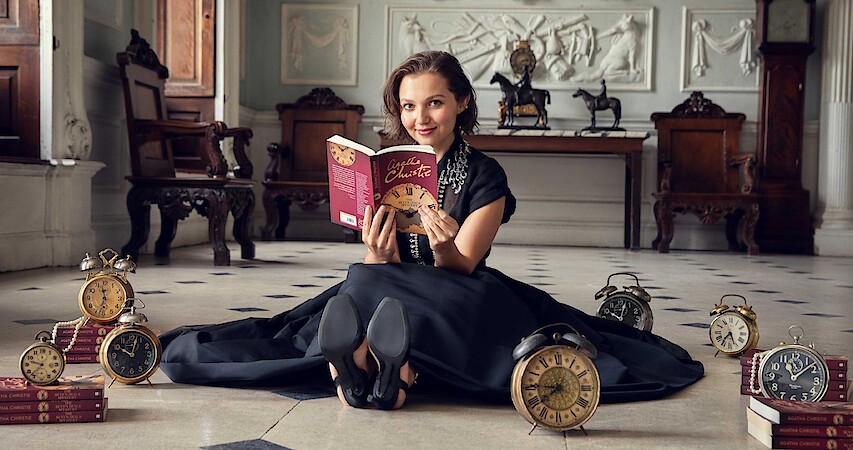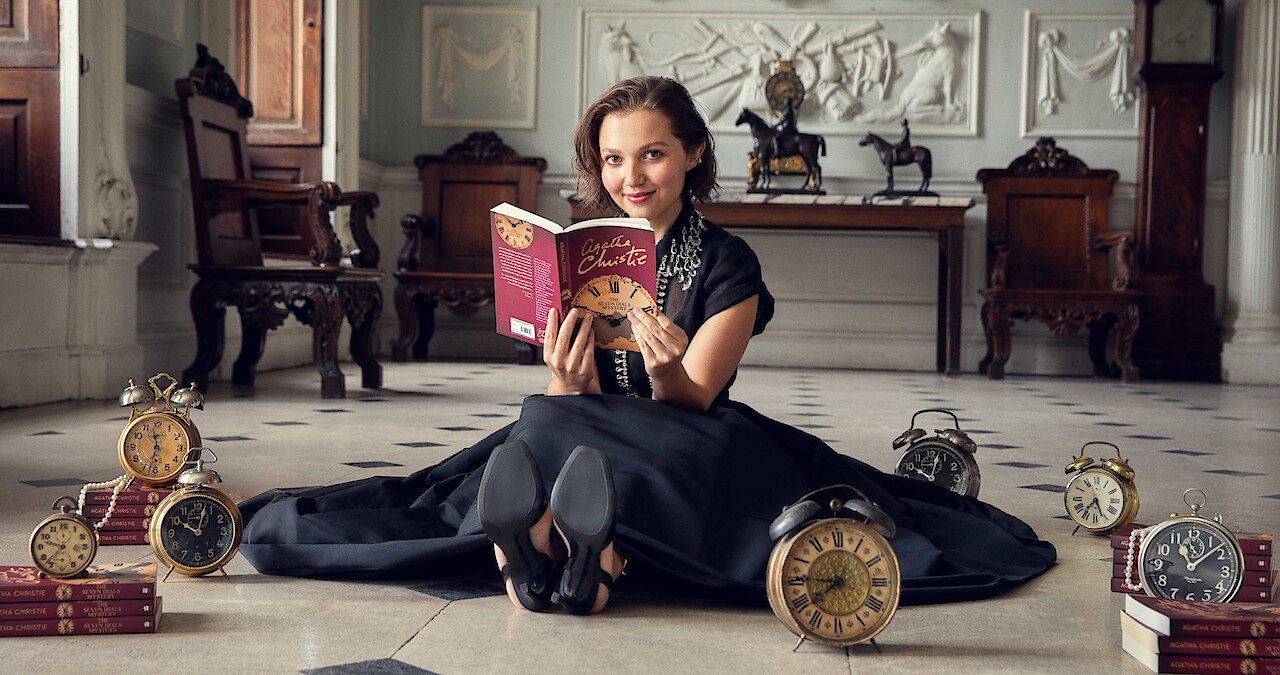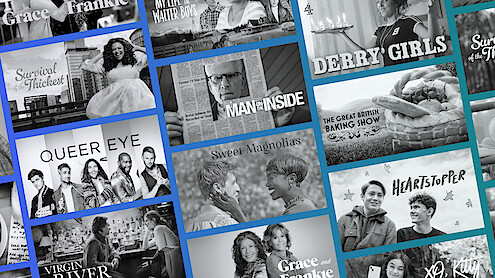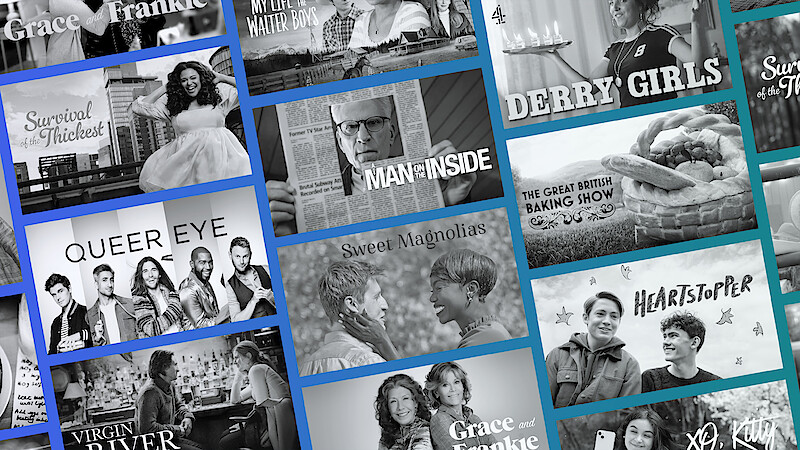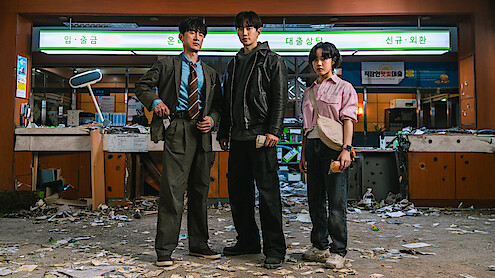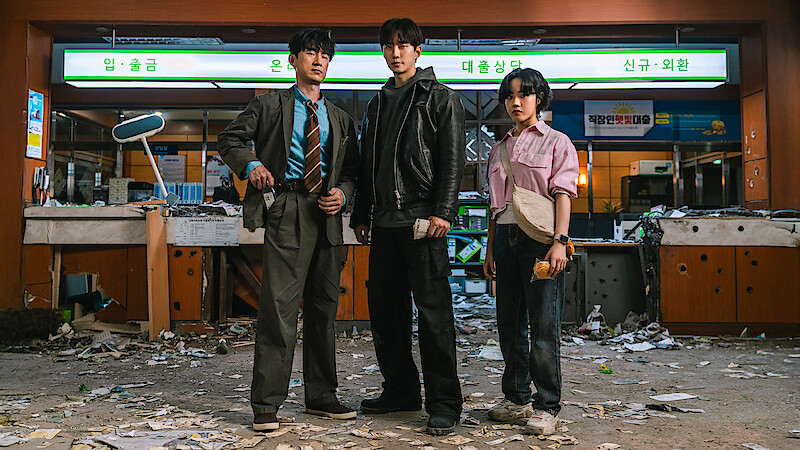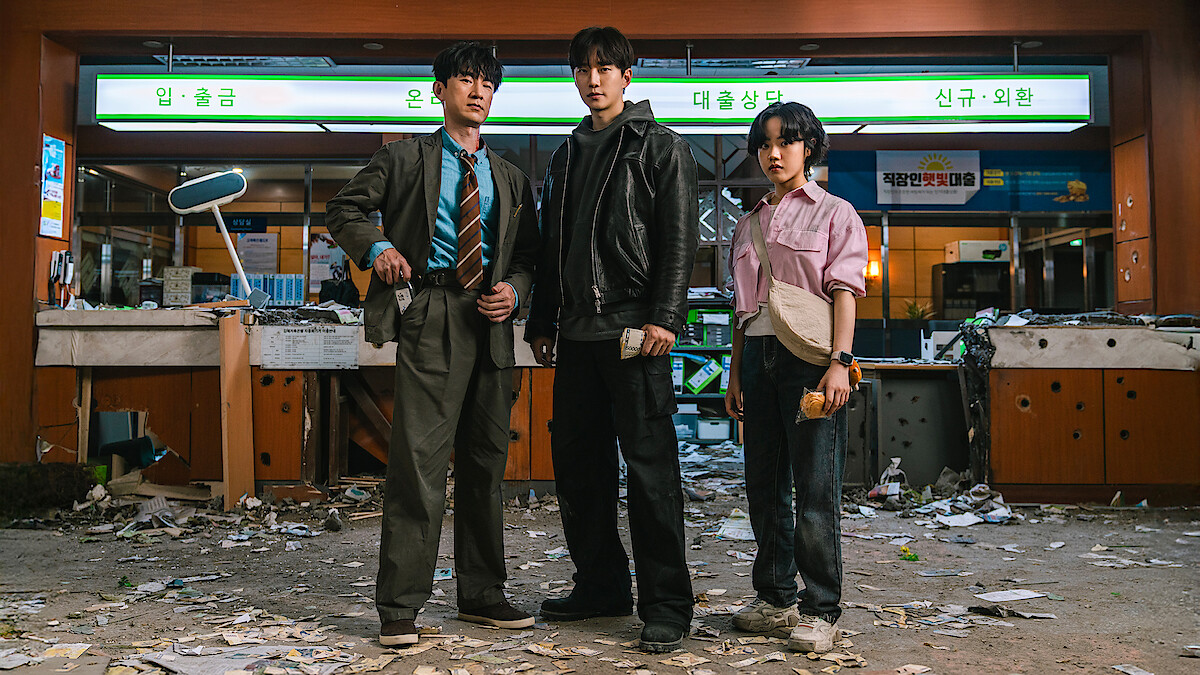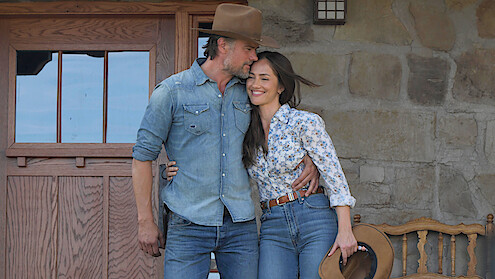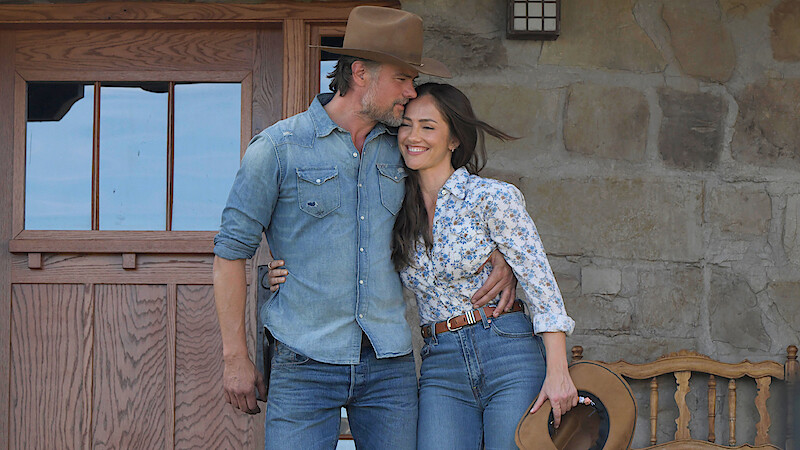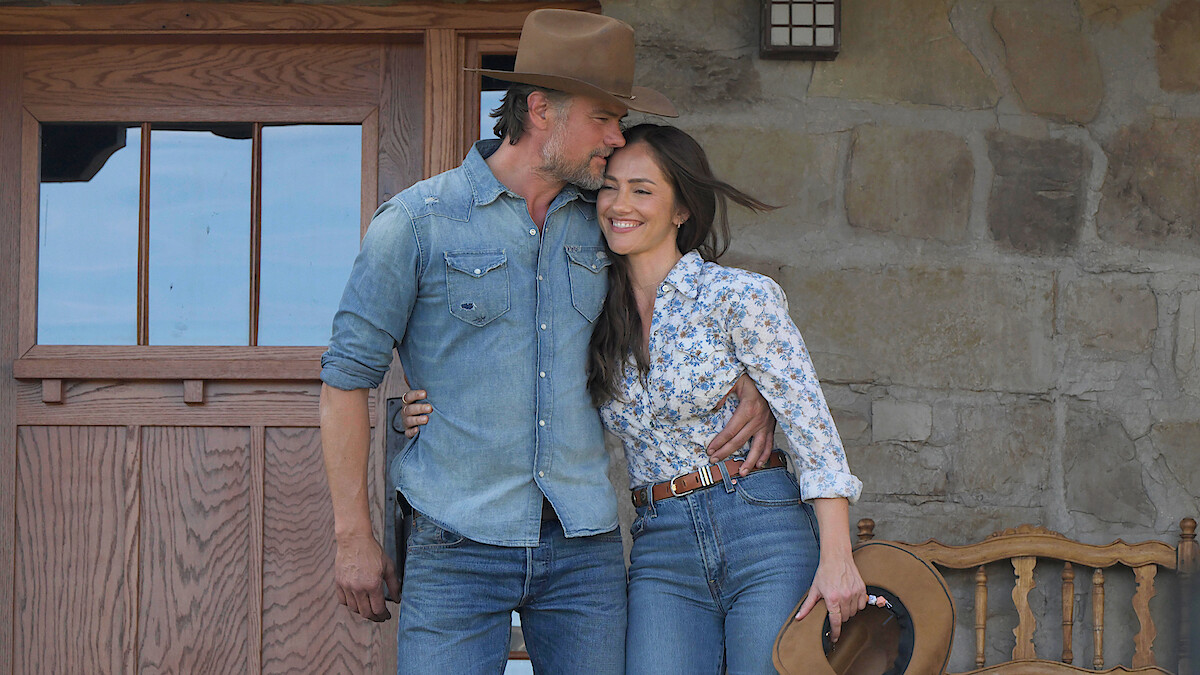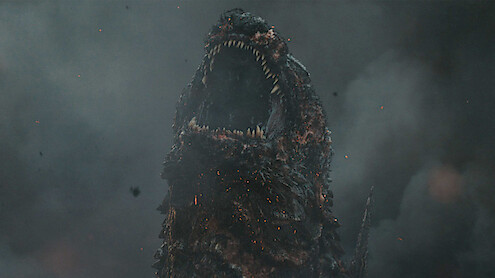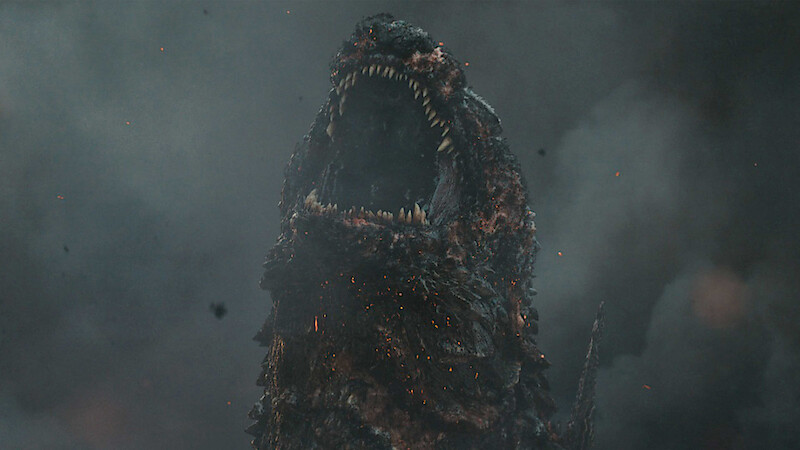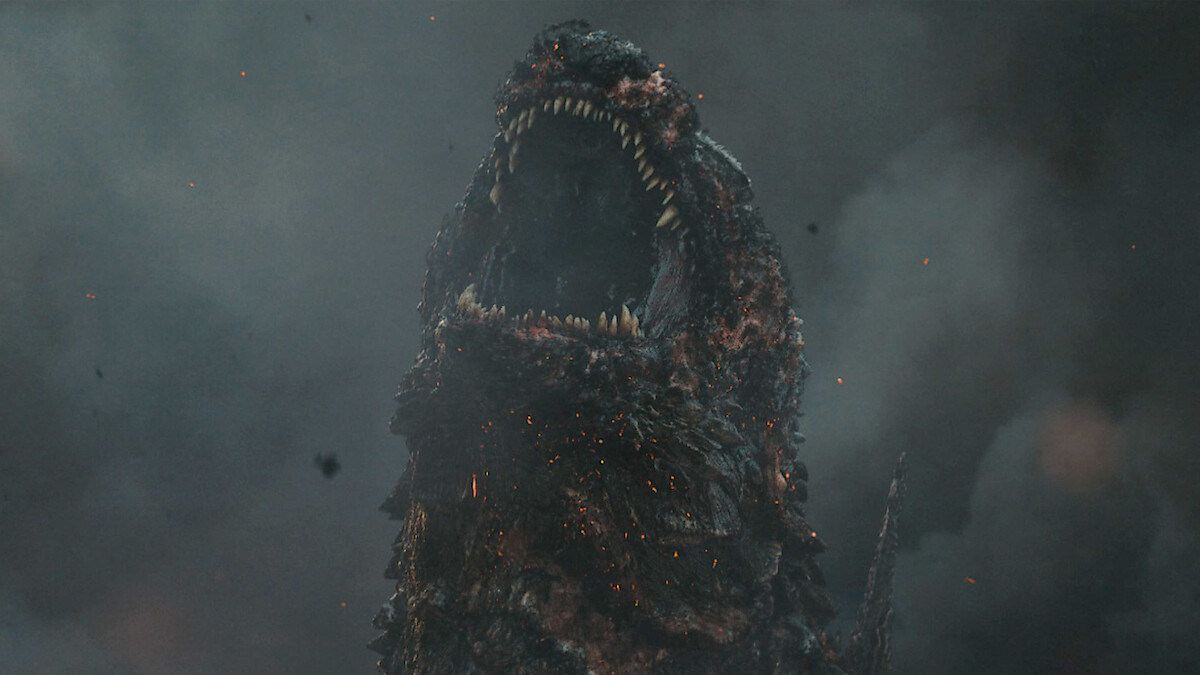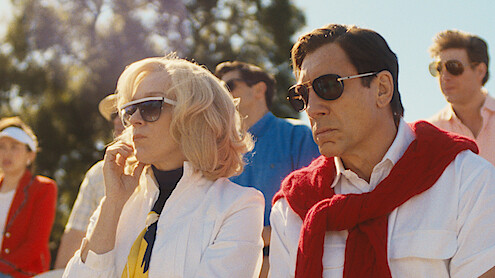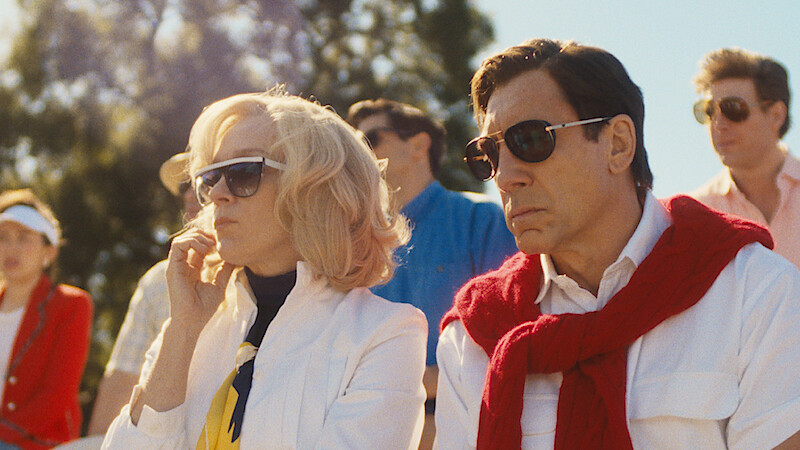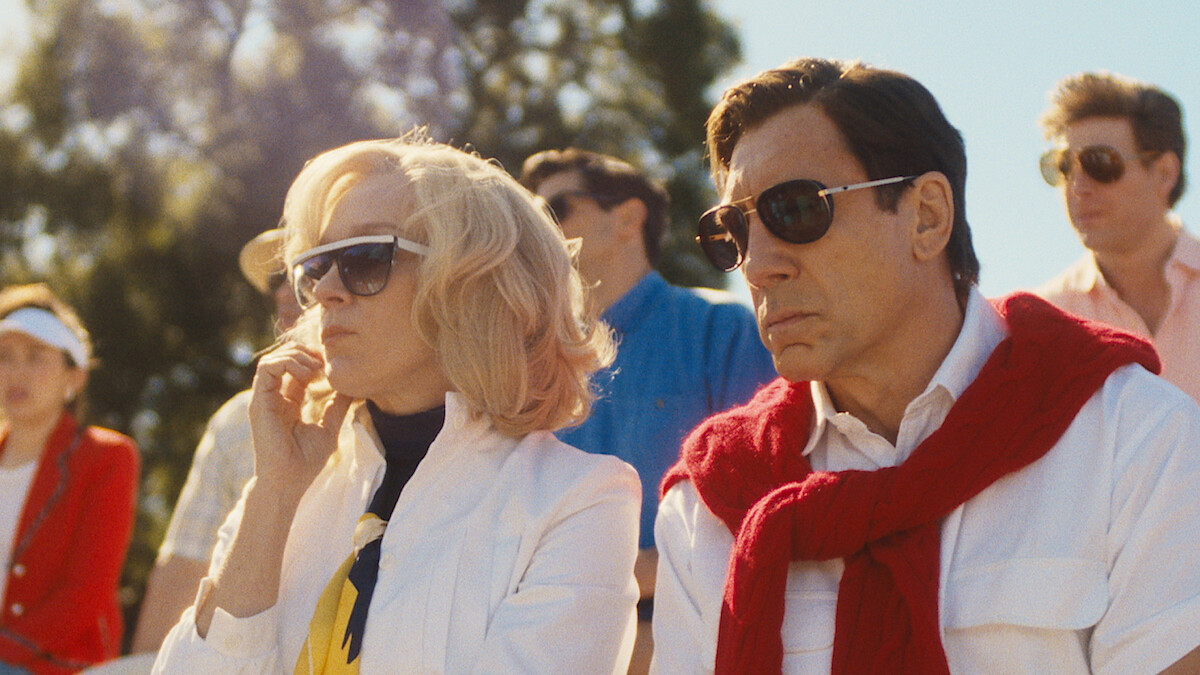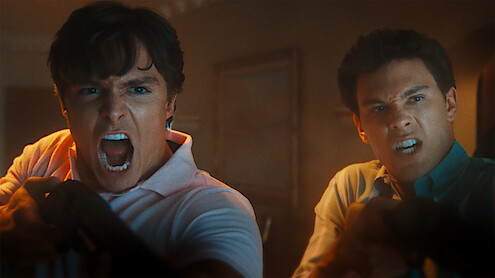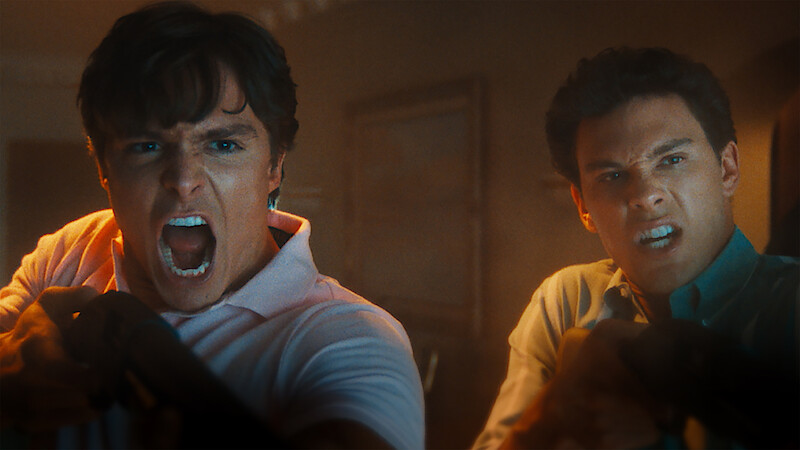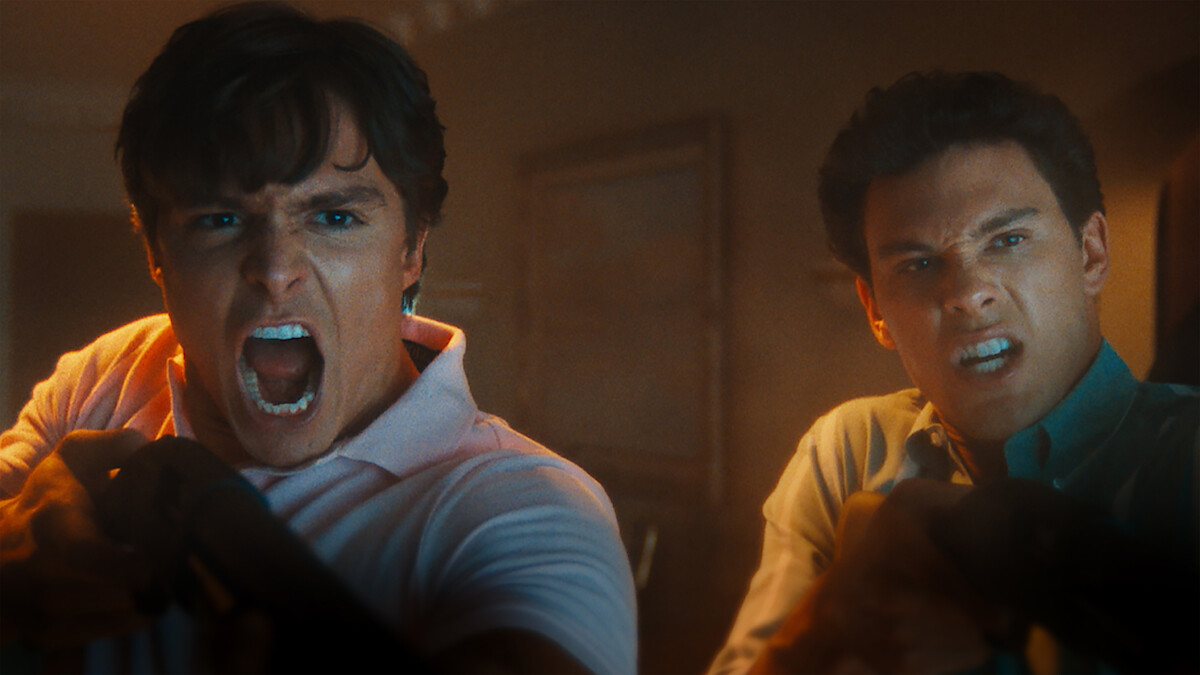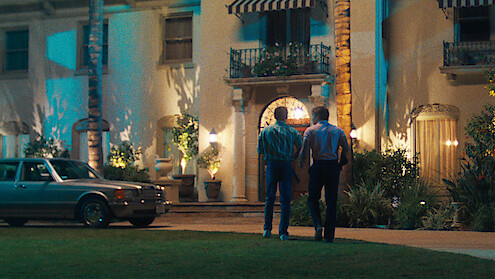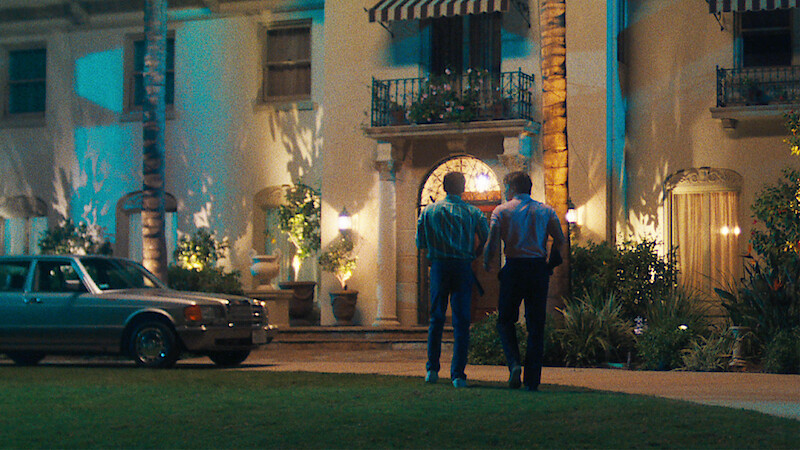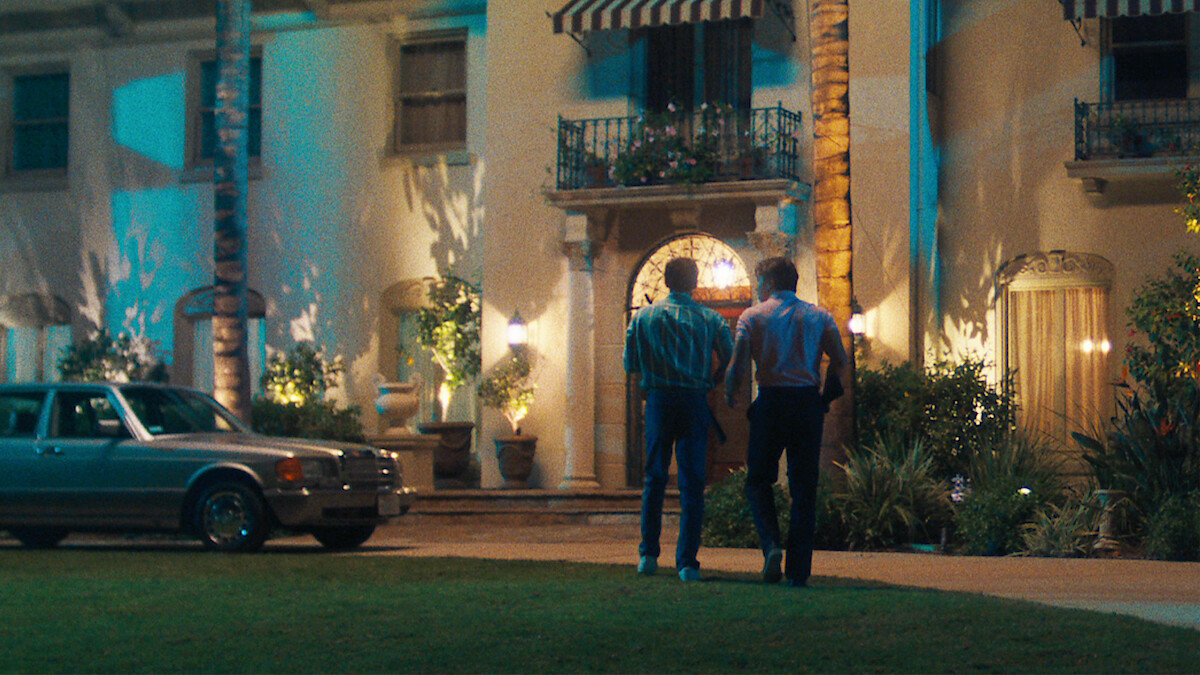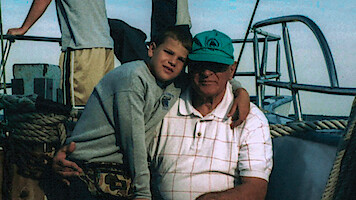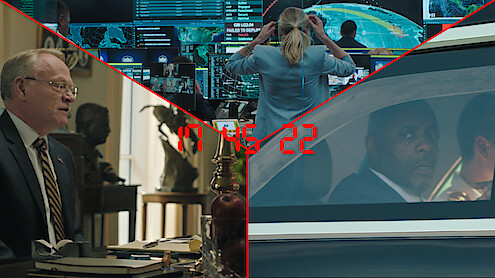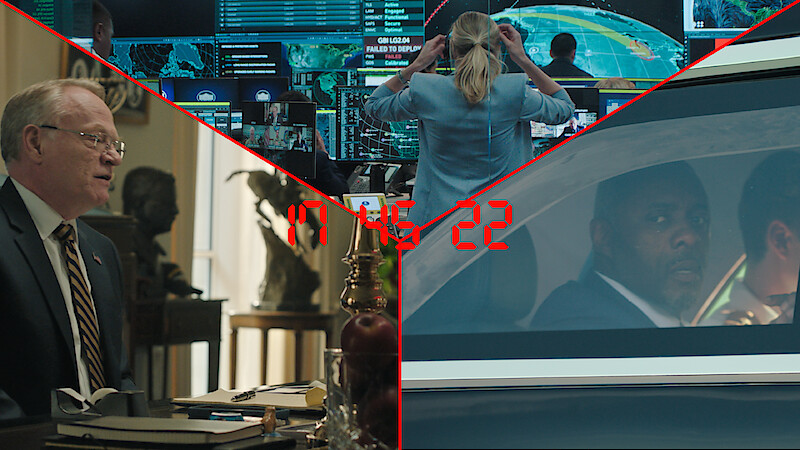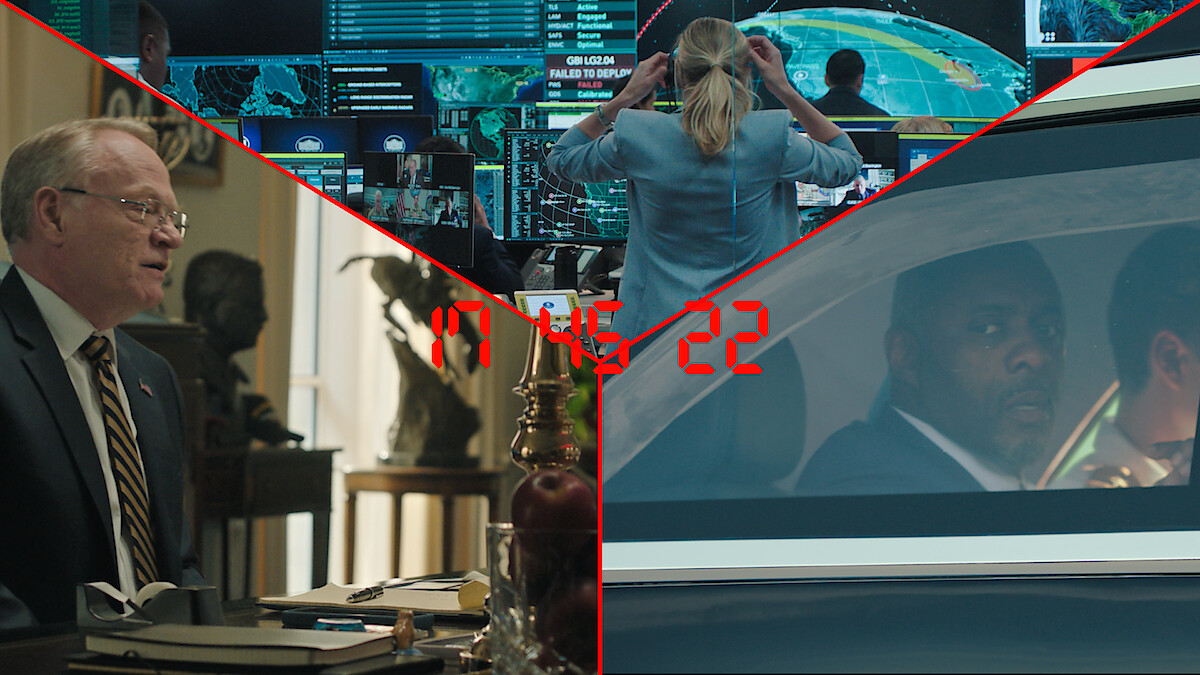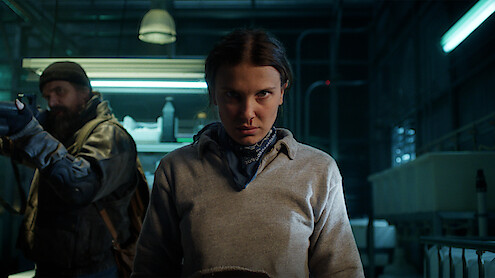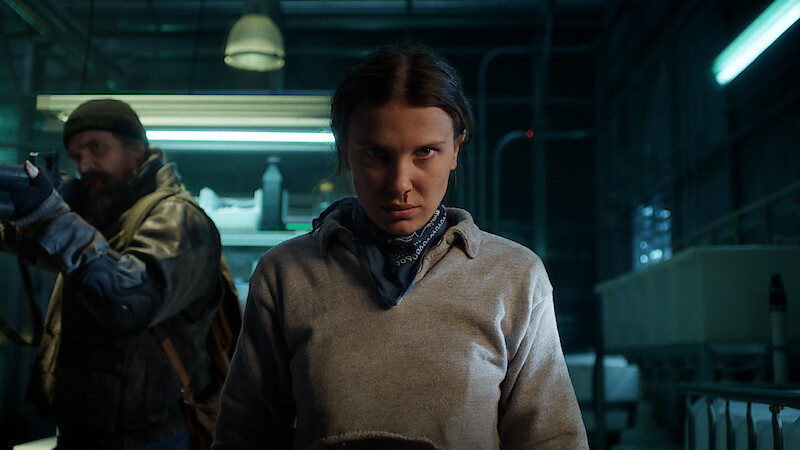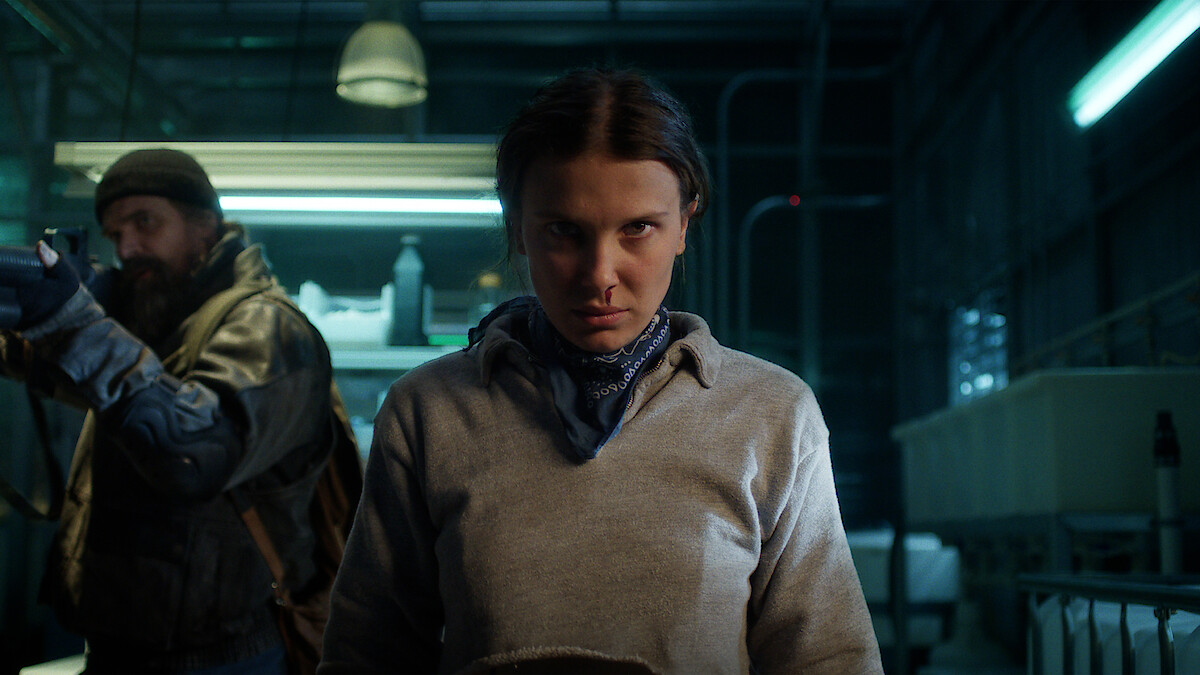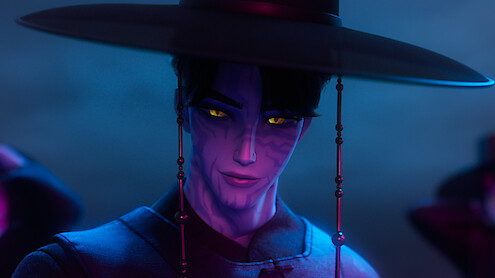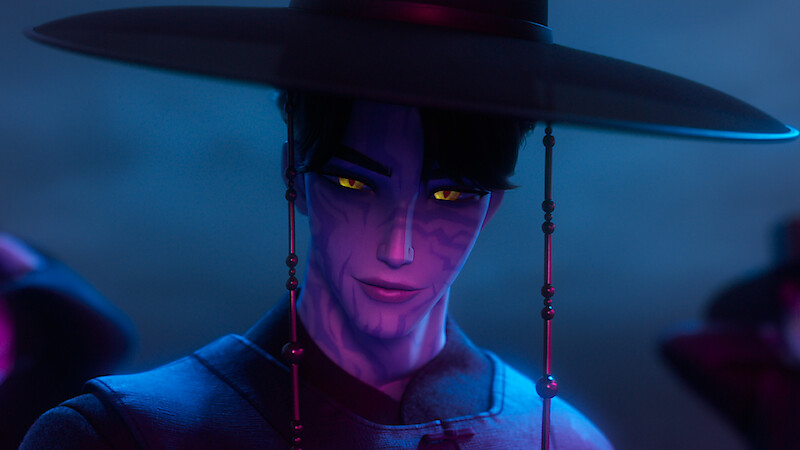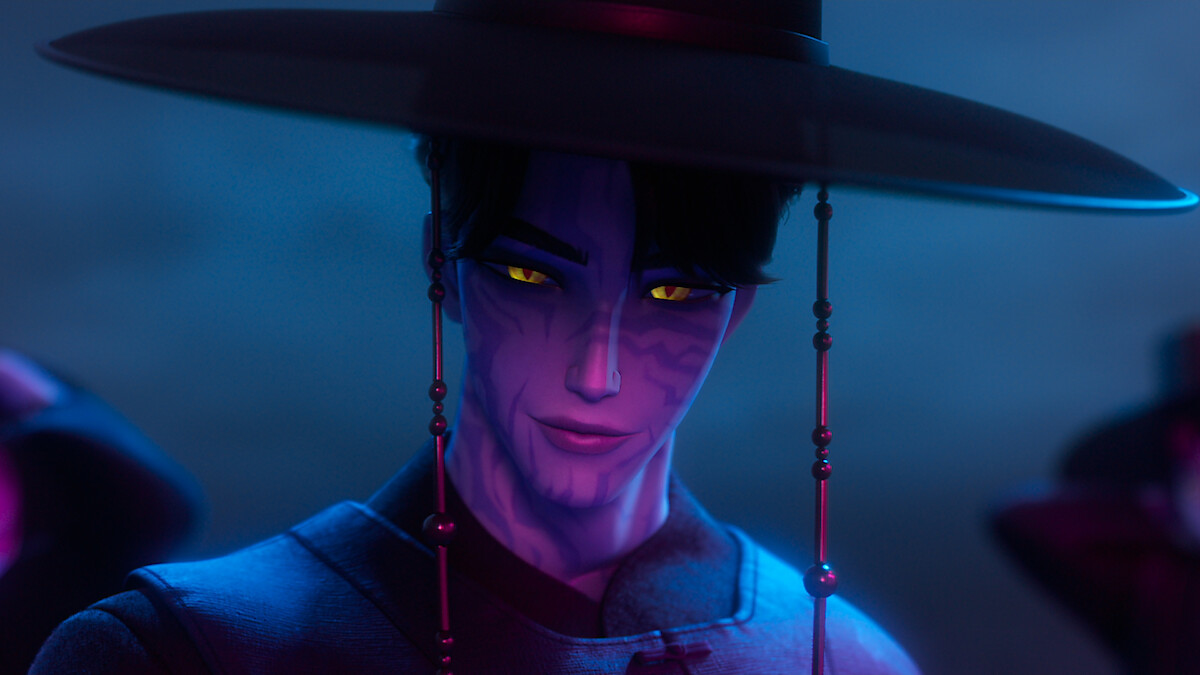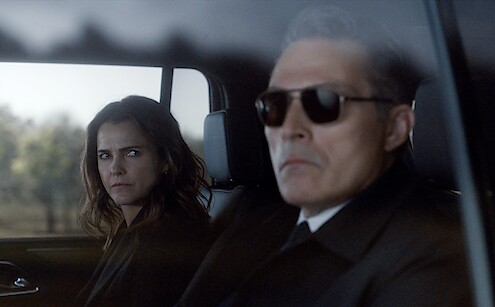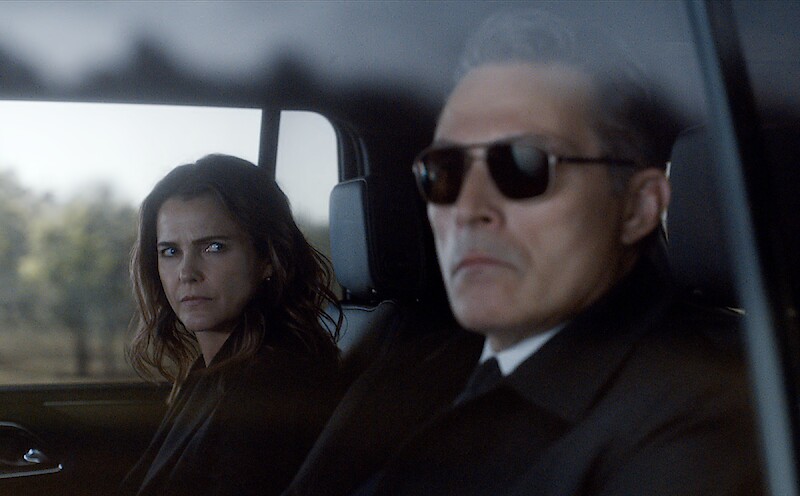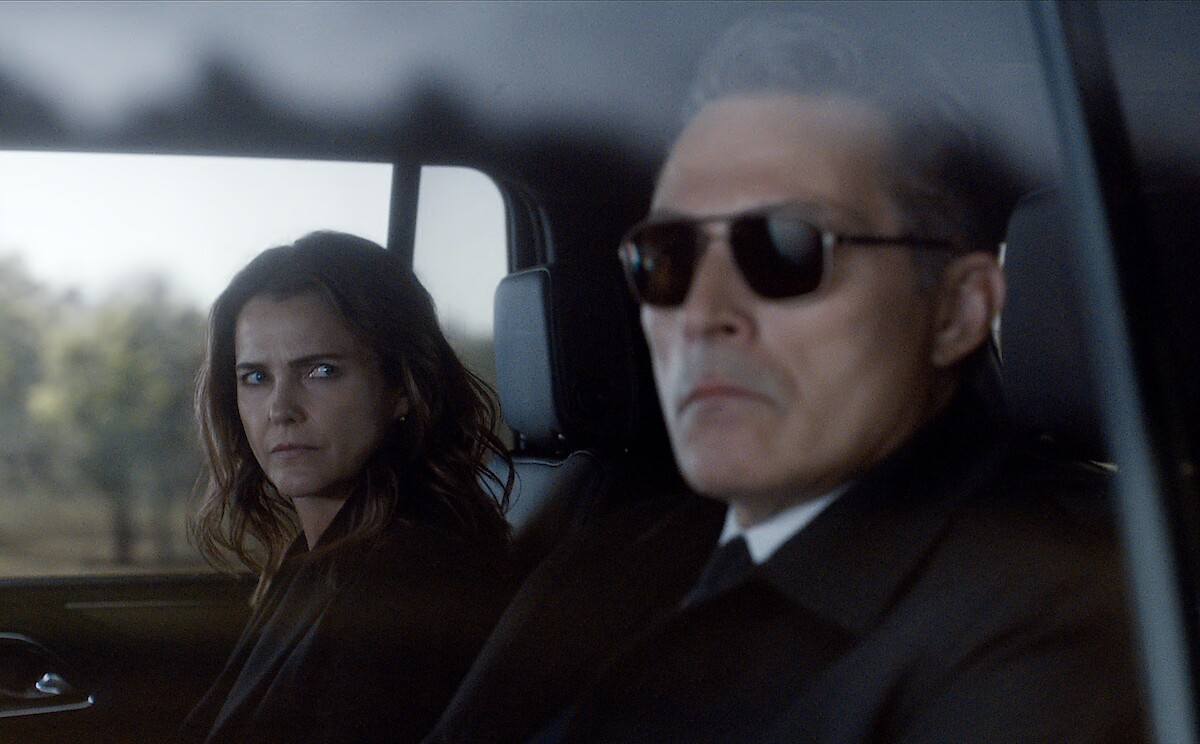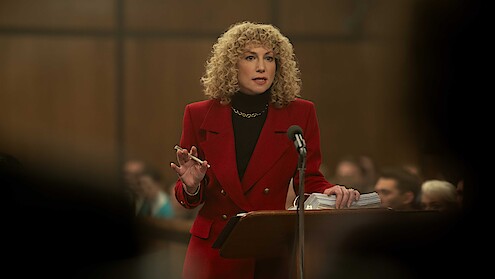
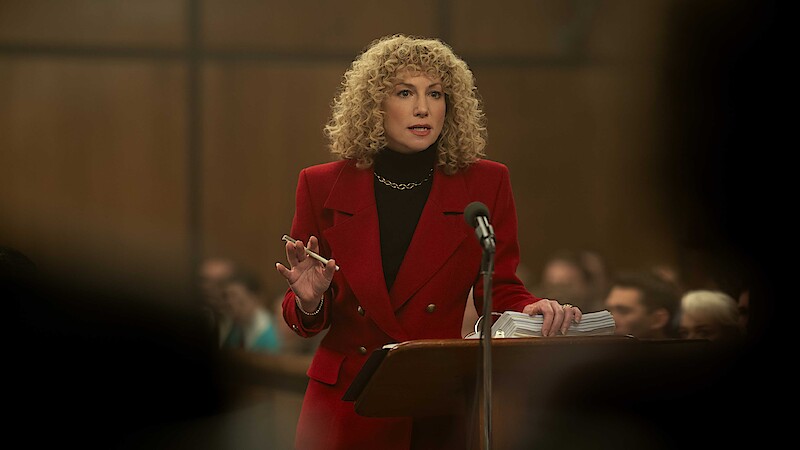
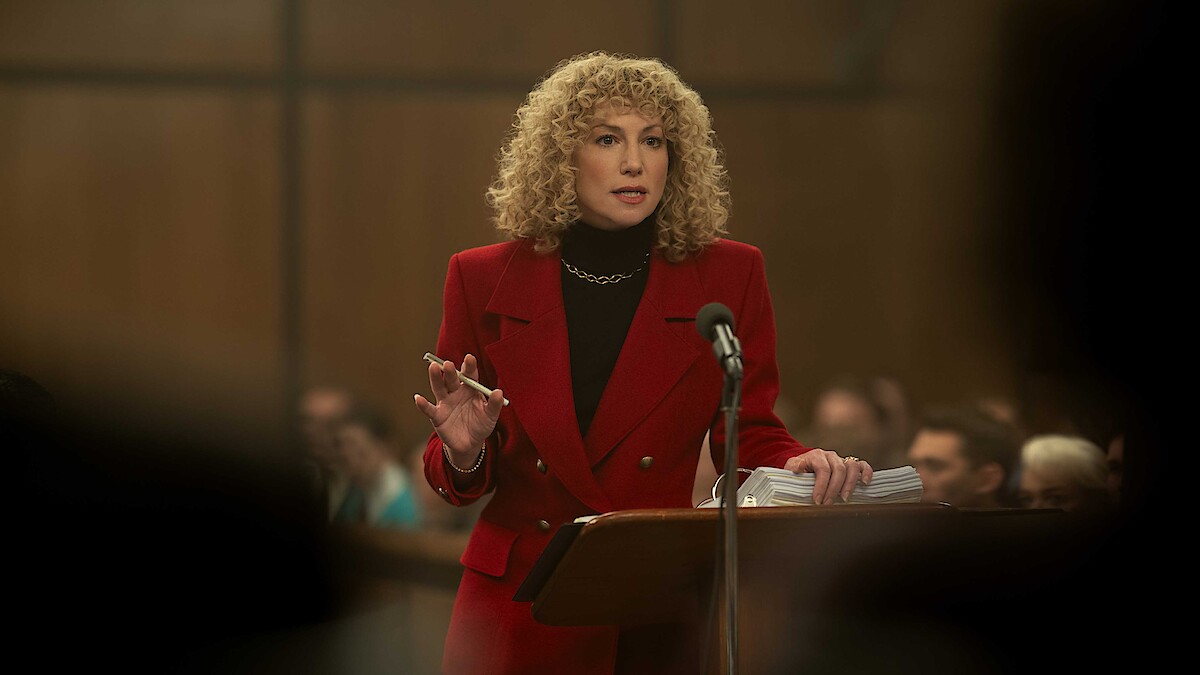



Close friends and former collaborators Ari Graynor and Sarah Paulson are two showstopping performers with a common milestone: They’ve both played tough-as-nails attorneys at the center of a Ryan Murphy–produced anthology series. Back in 2016, Paulson turned in an Emmy-winning performance as prosecutor Marcia Clark in American Crime Story: The People v. O.J. Simpson. Now, in Monsters: The Lyle and Erik Menendez Story, Graynor transforms into defense lawyer Leslie Abramson, who represented one of the two California brothers convicted in 1996 of murdering their parents in the now-infamous trial.
Graynor is a force to be reckoned with as a tenacious attorney handling the pressure of a much-publicized trial. The pressure on the actor is especially high in Episode 5, “The Hurt Man,” a continuous 33-minute scene captured in a single, unbroken shot. In it, Erik, played by Golden Globe Award nominee Cooper Koch, recounts the disturbing details of his childhood in Los Angeles. Graynor and Koch hold the entirety of the episode on their shoulders — and they carry it beautifully.
Here, mutual admirers Graynor and Paulson — who co-starred in the 2020 Emmy-nominated limited series Mrs. America — chat about what it takes to bring a Murphy legal marvel to life on screen.
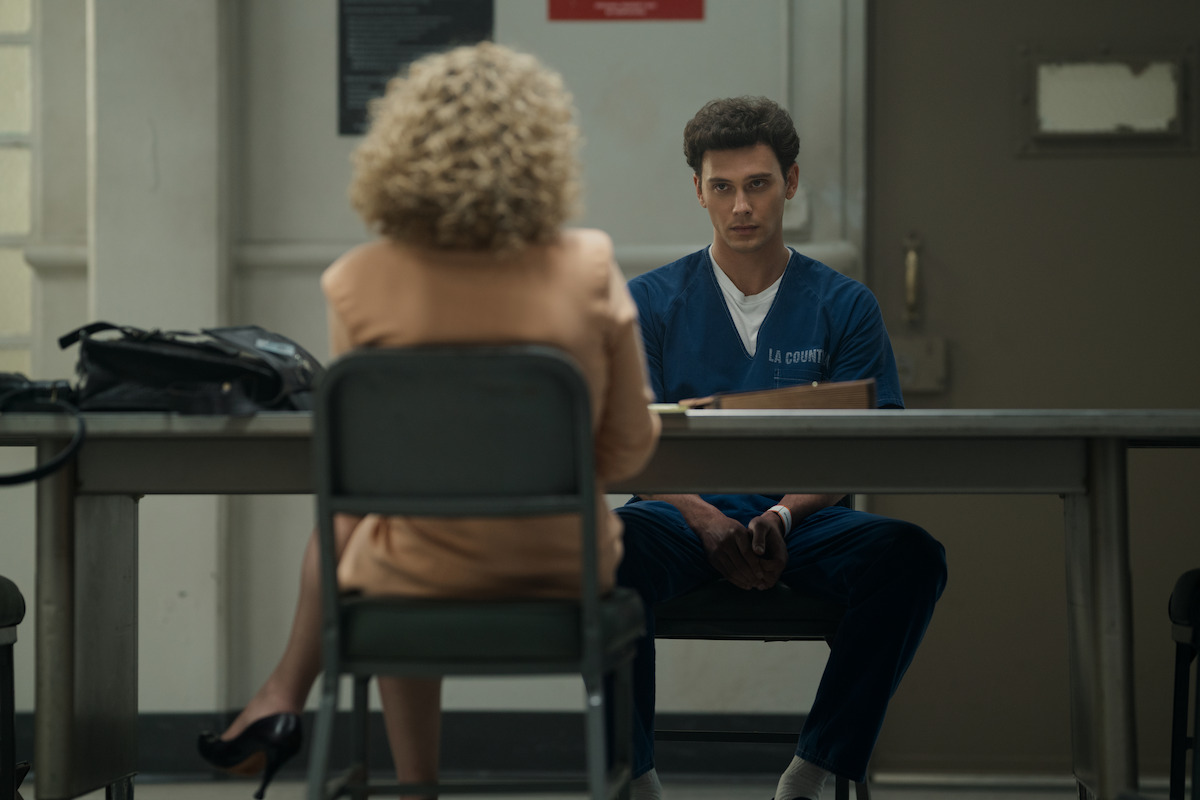
Sarah Paulson: There was something so spectacular about the seamlessness with which I felt you inhabited this woman. Were you having that experience inside of it?
Ari Graynor: It was a deep, profound, challenging, gorgeous experience. I’ve never been more afraid of playing anyone before in my life. Because it was a real story, because she’s a real person, because this was Ryan Murphy and Netflix, there was an expectation or a sense that people were going to see it. And so there was pressure there.
I feel like many of the other characters I’ve played were girls. And in some ways this was the first woman. The way she owned her power was such an opportunity for me, and I was like, “All right, it’s time to step into that in myself.”
I knew the gift and opportunity of that, and I also had a lot of fear about that. What if I get in my own way and I let her down? If I didn’t get it, I would be letting down a true person that I had come to really love.
I don’t think I’ve ever worked so hard on anything. But then when you feel like that work, as everyone says, can be thrown out the window, that you know it in your bones, something else gets to happen. It’s like a spiritual experience, where you lose your own sense of ego within something completely.
SP: I remember sitting in my trailer the day we wrapped People v. O. J., and I went from my trailer back to Marcia’s office, sat in that chair, and just thought, “How is this possible, that this thing that has been so transporting and transforming to me as a person and as a performer is over?” It sounds, probably, hokey to people who aren’t actors, but I was like, “Who is Sarah Paulson? I don’t even know anymore.”
AG: Totally.
SP: How did you get the part?
AG: All I know is I got a call from my team and they were like, “We have something really good and exciting and they’re doing a second season of Monsters and it’s to play Leslie Abramson.” The writing was so extraordinary and so deep and whole [in evoking] who she was as a woman, a human, her history, her present, her work, her personal life. And I immediately felt like it was one of those as an actor where you go, “I have to do this. This is me.”
And then [casting directors] Tiffany Canfield and Josh Einsohn really nudged me to come in and audition in person with them, which is a gift nowadays.
SP: I think about this all the time. I can’t tell you the number of jobs I think I actually got just from being in the room and having a connection with the director or with the casting director.
AG: I’m terrible at self-tapes. It’s not where I thrive. The whole point of being an actor for me is to lose your sense of self-consciousness. And so having to tape, even having to be on Zoom where I’m having to stare at my face right now, it’s very difficult for me. But I had gotten used to Zoom, so I was like, “Oh, maybe I’ll just do the Zoom.” And they were like, “No, no, no. Come in and let’s do this.” And it was the day before the actors’ strike and then I just was like, “I have to put this away. I have to totally forget about this.”
And what a terrifying time it was for everyone in our business. I was really like everybody else, thinking, “What is it going to be when we get back?” And then the day the strike ended, miraculously, they came in with the offer.
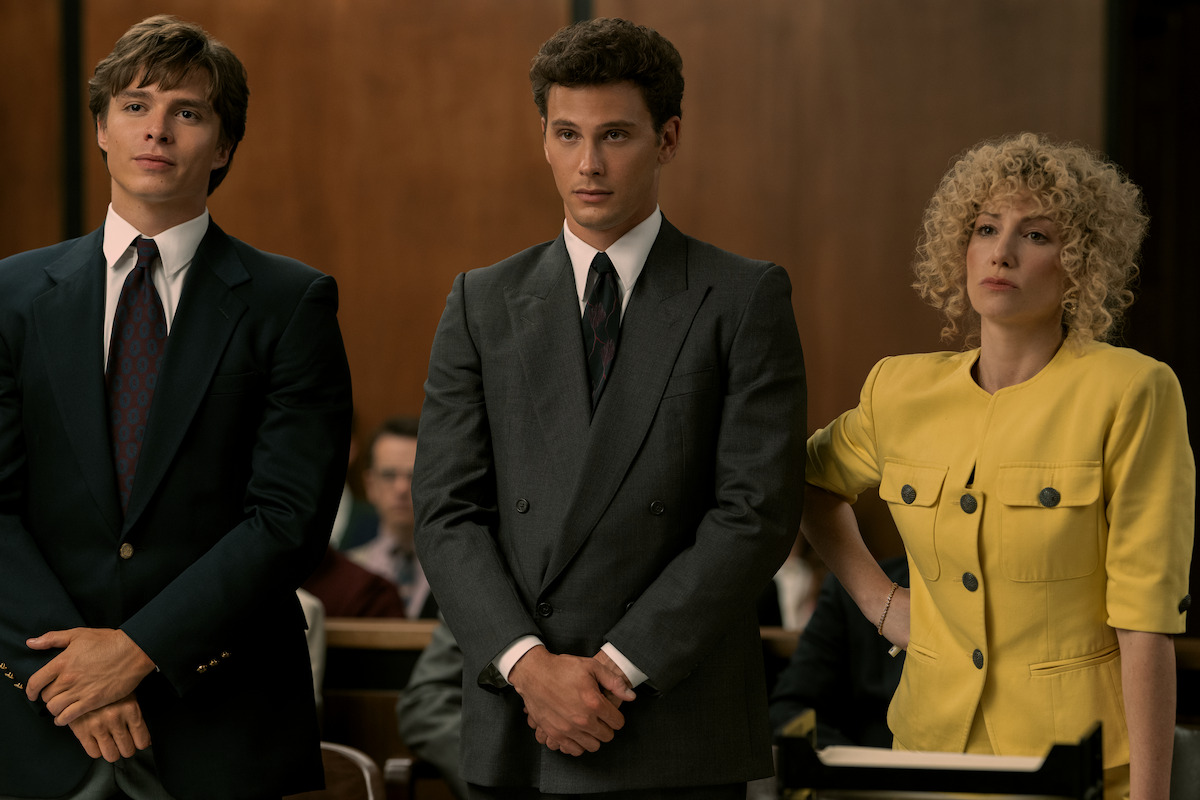
SP: Were you worried about [Abramson] seeing it? Were you able to keep noise out of your head or was it ever-present?
AG: There was always a desire to honor her her-ness. Wanting to do her right, wanting to get her essence. I think in life the thing that people most want is to be seen. And I wanted her to feel seen. I felt very acutely her obvious strength and power and her toughness and her belief — deep belief — in fairness. And immediately also saw her warmth and her love and how much she saw these boys, especially Erik, as her children.
Also, Joan Didion and John Gregory Dunne were her best friends. He based a character on her in a book, which I read. You get these little nuggets of things when you’re playing a real person. She drove a yellow Camaro when she was in law school. She loved to dance. These things all become part of building a spirit, and there’s nothing more satisfying as an actor, I think, than when you get to hold the wholeness of somebody in different environments, because we are all slightly different wherever we are.
SP: Say a little bit about what that experience was like doing Episode 5 in particular, because it is, I think, one of the great episodes of television I can remember.
AG: First of all, that is just one of the absolute greatest gifts of my life and career. And to be able to do that with Cooper — he was the first person I spoke to right after I got the offer and we immediately got into it. He’s just such a love and such a remarkable person and actor.
Cooper and I had run lines very casually twice, I think, on the porch of my house. There were many days set aside for rehearsal. We went in for one day of rehearsal and it was just me and Cooper and our incredible director, Michael Uppendahl. And we sat down and we did it once and we were all just quiet and it was like the thing happened. The two of us felt like there was a real sense of purpose in telling and sharing this story.
SP: What about you has changed now that you’ve had this experience of playing this woman?
AG: I am a person who both knows my power but also has been — sometimes still am — plagued by self-doubt. It was such a gift to get to walk in her shoes, to own her and to own myself — owning a kind of power in myself that I’m not able to always step into as myself. I think that sometimes, until you are able to experience something, embody something, you don’t fully know it in yourself. You can’t trust it in yourself as much. She opened up a certain power center in me that I am endlessly grateful for.
This whole story — this case and this trial and the boys and her — there is always more to a story than we are told. There is always more to the story than we read in a headline. There is always more of the story than the clip we see. And I think a lot about a quote from Leslie — she said, “I believe people are more than the worst thing they do.” And I take that with me. I really take that with me.
SP: I’m going to take that with me too.
